News written by Rich Fiscus (October, 2007)
Written by Rich Fiscus @ 30 Oct 2007 12:22
 Samsung Electronics introduced what they're calling the fastest DVD burner on the market. The Super-WriteMaster SH-S203N is a SATA burner that writes dual layer DVDs at up to 16x and also has Lightscribe support.
Samsung Electronics introduced what they're calling the fastest DVD burner on the market. The Super-WriteMaster SH-S203N is a SATA burner that writes dual layer DVDs at up to 16x and also has Lightscribe support.
"Samsung's new SH-S203N is an all-in-one powerhouse that provides not only the fastest recording speeds on the market, but also built-in labeling technology that saves time and expense over the life of the drive," Richard Aguilera, western regional sales manager, Samsung Storage Division, said in a press release.
The SH-S203N also offers Speed Adjustment Technology, which Samsung says is used to match the speed to the functionality of the disc and Double Optimum Power Control, which is supposed to improve burn quality on the outside edge of the disc.
The SH-S203N has a suggested retail price of $79.99.
Source: Press Release
Written by Rich Fiscus @ 30 Oct 2007 10:11
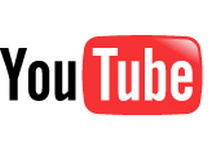 A Pennsylvania woman, with the help of the Electronic Frontier Foundation (EFF), is taking Prince to court over his alleged involvement in a DMCA takedown request earlier this year. Although Stephanie Lenz was successful in getting the video restored to YouTube, EFF staff attorney Corinne McSherry said the purpose of the suit is "To keep them from abusing [the DMCA]."
A Pennsylvania woman, with the help of the Electronic Frontier Foundation (EFF), is taking Prince to court over his alleged involvement in a DMCA takedown request earlier this year. Although Stephanie Lenz was successful in getting the video restored to YouTube, EFF staff attorney Corinne McSherry said the purpose of the suit is "To keep them from abusing [the DMCA]."
The original takedown request was for a video Lenz posted on YouTube showing her 18 month old son dancing to a Prince song. The clip is a mere 29 seconds long, and the music is barely distinguishable in the background. After the video had been available on YouTube for a couple of months, the viral video company received a DMCA takedown notice from Universal Music Group (UMG) stating that the video was in violation of their copyright. The video was removed until the EFF helped Lenz file her suit against Prince and a counter-takedown notice with YouTube, which eventually resulted in the video being restored.
According to company sources, Prince was very involved with the original takedown notice. They say he personally contacted UMG to have them file the notice. Prince has also recently hired a firm to police the internet for anything that infringes on his intellectual property.
Read more...
Written by Rich Fiscus @ 29 Oct 2007 11:09
 In the words of one Comcast employee, the company's policy of "shaping traffic" which results in disruption of some P2P services is a result of corporate arrogance. "They did it because they think they can get away with it."
In the words of one Comcast employee, the company's policy of "shaping traffic" which results in disruption of some P2P services is a result of corporate arrogance. "They did it because they think they can get away with it."
This comment was made to Ars Technica, which has published comments from a number of Comcast employees in the aftermath of AP and EFF tests that confirmed issues with not only P2P, but also some business applications when transmitting across the Comcast broadband cable network. Comcast has officially acknowledged only that they "delay" some packets, which is apparently what causes the applications to fail when transmitting to external networks across the internet.
Company sources have reportedly provided INTERNAL emails detailing tech support's responsibility to repeat the official company line. An email sent to a call center manager emphasized that all company representatives must mirror official statements that "We have a responsibility to provide all of our customers with a good experience online and we use the latest technologies to manage our network." It adds "This is standard practice for ISPs and network operators all over the world."
Read more...
Written by Rich Fiscus @ 29 Oct 2007 10:06
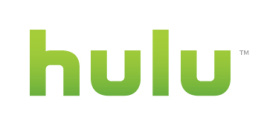 Today NBC Universal (NBCU) and News Corp. owned video venture Hulu enters private beta testing. Those companies and last minute additions which include MGM and Sony Pictures Television will be providing content for the site.
Today NBC Universal (NBCU) and News Corp. owned video venture Hulu enters private beta testing. Those companies and last minute additions which include MGM and Sony Pictures Television will be providing content for the site.
NBC in particular seems to be putting all their eggs in Hulu's basket. Earlier this year they announced the end of another online venture, which upset some network affiliates. August saw them in a very public dispute with Apple over iTunes pricing, which lead to a decision not to renew the company's contract with the world's largest online media store. Finally, less than two weeks ago they pulled the plug on their very popular YouTube channel.
So what does Hulu offer that has NBC executives apparently turning their back on nearly every other web outlet for video? To begin with it has content deals with that will make series like The Simpsons, 24, The Office, and Heroes available for visitors to view, send clips to friends, or even post on a webpage. Current deals will make the most recent 5 episodes of a TV show available at a time. It also gives NBCU a voice in pricing, the apparent key point of contention in their split with iTunes.
Read more...
Written by Rich Fiscus @ 29 Oct 2007 12:52
 Just as in the pre-ecommerce world musicians would often sign with independent labels to finance recording, a new trend is developing that has some bands foregoing traditional financing altogether and raising money on the internet.
Just as in the pre-ecommerce world musicians would often sign with independent labels to finance recording, a new trend is developing that has some bands foregoing traditional financing altogether and raising money on the internet.
Two websites, SellaBand and Slicethepie, offer a musicians a place to gather supporters and financing for recording. Specific goals are set by the services, representing their ideas for how much it realistically costs to have a CD professionally recorded. Site visitors can contribute to a band's efforts for as little as $10. In exchange for this money they get perks ranging from backstage passes to a cut of the resulting CD's profits.
So far eight acts have raised the $50,000 required by Sellaband before money is disbursed. Until patrons, which SellaBand refers to as Believers, have racked up that much, the money stays with the company. Before that time the contributions, known as Parts, can be switched from one artist to another, or withdrawn entirely and returned to the Believer.
Sellaband provides a producer and studio time to funded artists. Believers get Limited edition copies of the resulting CD, with any profits from its sale split between Sellaband, the artist, and all the Believers who helped fund the recording. Three songs from each CD are offered as free downloads from the company's website, and the rest are sold for $0.50 each.
Read more...
Written by Rich Fiscus @ 29 Oct 2007 12:09
 With all the hype surrounding new methods of digital video distribution, a new market is emerging that caters to people interested in movies that traditionally don't get any exposure in the U.S. marketplace. A download service called Jaman caters to people looking for less mainstream international movies.
With all the hype surrounding new methods of digital video distribution, a new market is emerging that caters to people interested in movies that traditionally don't get any exposure in the U.S. marketplace. A download service called Jaman caters to people looking for less mainstream international movies.
"If people want 'Spiderman' or 'Shrek,' there are a hundred places to get that," said Jaman founder Gaurav Dhillon. "This is where people come for stuff that is a little more edgy."
In addition to seeing his site as a marketplace for international films, Dhillon also believes it could potentially be a gateway to Hollywood success for some. The site provides exposure for members who upload original films in exchange for an exclusive distribution deal. Jaman offers both rental and sales of the movies, with the creators getting paid if their movies are profitable.
Some feel this makes Jaman an ideal place to look for new talent without first digging through mountains of amateur video. An anonymous visitor to the Jaman website posted "We can make it a place where industry executives go to look for new talent. YouTube is too random and our individual postings on websites are too hard to find."
Read more...
Written by Rich Fiscus @ 28 Oct 2007 11:34
 The music industry is trying hard to bring online content into brick and mortar stores. While traditionally, music downloads have been purchased through online transactions, new initiatives are intended to allow consumers to walk into a store and pay for downloads.
The music industry is trying hard to bring online content into brick and mortar stores. While traditionally, music downloads have been purchased through online transactions, new initiatives are intended to allow consumers to walk into a store and pay for downloads.
Although it may seem strange for retailers to essentially stock products from online stores, there are a lot of reasons they may be excited about this sort of distribution arrangement. Unlike standard CDs the new download cards, which are already available from retailers like the Safeway grocery chain and Starbucks, take little shelf space and since they have to be activated before use they also don't cost anything.
Industry insiders seem satisified with the product so far. "People are pleasantly surprised by the results," Sony BMG Music Entertainment senior vice president and general manager of U.S. digital sales Adam Mirabella said. "This is a new product, and the customers are just learning about it," EMI Music Marketing senior VP of sales Darren Stupak said. "So the sales can only get better."
Another upcoming product intended to connect the offline and online worlds is the ringle. A couple of songs and a credit for a ringtone are included in a single package. Music labels are hoping the ringle will energize profits from physical CD sales, although critics point to it as an example of how labels are out of touch with consumers.
Read more...
Written by Rich Fiscus @ 28 Oct 2007 10:35
 Public Knowledge, a consumer rights advocacy group specializing in intellectual property issues, released a proposal calling for an overhaul of U.S. copyright laws last Friday. They're calling their proposal a "Six-Point Program for Copyright Reform."
Public Knowledge, a consumer rights advocacy group specializing in intellectual property issues, released a proposal calling for an overhaul of U.S. copyright laws last Friday. They're calling their proposal a "Six-Point Program for Copyright Reform."
First among the six points is fair use reform. Public Knowledge is recommending the addition of "incidental, transformative and non-commercial personal uses of content" as well as indexing for searches to the list of fair use exemptions.
The group would also like to see the results of the 1984 BetaMax lawsuit codified in copyright law. In that case the Supreme Court ruled that Sony wasn't liable for copyright infringement because video recording technology has “substantial non-infringing use.”
On the subject of the Digital Millenium Copyright Act, Public Knowledge is recommending revisions that would deter improper takedown requests. DMCA takedown requests are issued by copyright holders to force the removal of infringing material from web pages.
Read more...
Written by Rich Fiscus @ 28 Oct 2007 5:46
 Walgreen, the largest pharmacy chain in the U.S., plans to install DVD burning kiosks in their stores soon. According to company spokeswoman Tiffany Bruce, "We hope to launch DVD-burning kiosks in the next few months. We think its a type of solution that will work very well in our stores, giving us the ability to provide a virtual inventory to a diverse customer base."
Walgreen, the largest pharmacy chain in the U.S., plans to install DVD burning kiosks in their stores soon. According to company spokeswoman Tiffany Bruce, "We hope to launch DVD-burning kiosks in the next few months. We think its a type of solution that will work very well in our stores, giving us the ability to provide a virtual inventory to a diverse customer base."
The recent boom in DVD kiosks began when the DVD Forum, and later the DVD Copy Control Association approved a standard for burning DVDs with CSS encryption. The kiosks provide a cost effective and space saving way for retailers who view DVD sales as a peripheral business, such as pharmacies and grocery stores, to provide a wide variety of titles.
Even brick and mortar DVD rental leader Blockbuster is looking seriously at both DVD burning and kiosks. They recently purchased download service Movielink, and are already working on implementing it into their existing business model. They're also watching the kiosk business. Blockbuster spokesman Randy Hargrove said "We'll continue to monitor it. If it makes sense to get into kiosks, it's clearly something we could do."
Read more...
Written by Rich Fiscus @ 28 Oct 2007 12:31
 Movielink, the video download service recently acquired by Blockbuster lost more than $10 million dollars in just the first half of the year according to Blockbuster financial reports which will be released at the beginning of next month.
Movielink, the video download service recently acquired by Blockbuster lost more than $10 million dollars in just the first half of the year according to Blockbuster financial reports which will be released at the beginning of next month.
Fortunately for Blockbuster their purchase wasn't intended to breathe life into Movielink's existing business model. Instead they were motivated by the prospect of adding some kind of download or Streaming component to their Total Access DVD rental service. While allowing Total Access customers to return DVDs to brick and mortar stores for faster turnaround has proven popular with some consumers, it's proven equally costly for Blockbuster, resulting in limits being imposed on in-store returns.
The Netflix answer to Total Access has been their Watch Instantly feature, which makes a small but growing selection of movies and television shows available to stream to a PC. A loss of customers for the first time in the company's history, primarily attributed to competition from Blockbuster, caused Netflix to place more emphasis on streaming.
Read more...
Written by Rich Fiscus @ 28 Oct 2007 12:22
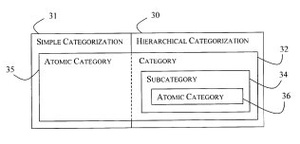 Refined Reccomendation Corporation has filed a lawsuit against Netflix claiming that the internet DVD rental service is infringing on a patent for "Optimizing interest potential." Essentially what that means is that the patent covers any system that categorizes items, tracks user interest based on those categories, and makes suggestions based on that analysis.
Refined Reccomendation Corporation has filed a lawsuit against Netflix claiming that the internet DVD rental service is infringing on a patent for "Optimizing interest potential." Essentially what that means is that the patent covers any system that categorizes items, tracks user interest based on those categories, and makes suggestions based on that analysis.
The patent can be boiled down to a single drawing on file with the patent office. The drawing clearly shows that categories can be either very broad or very detailed; something that attorneys will no doubt point out is hardly innovative if this makes it to trial. In fact it's highly unlikely a single etailer has ever consulted this patent before coming to the conclusion that they might be able to make recommendations for customers. Certainly the brick and mortar retailers who came up with similar ideas before the a single online sale was ever made.
There have already been a number of high profile lawsuits by what have come to be known in some circles as patent trolls; companies whose sole revenue source is patent royalties - often from questionable patents. Not surprisingly these companies are some of the most vocal opponents of the patent reform bills being considered in the U.S. Congress. However, the result of this case could have serious implications for internet commerce as one of the key components of online shopping services could suddenly become much more expensive to operate.
Read more...
Written by Rich Fiscus @ 27 Oct 2007 12:54
 Writer/director Ed Burns will be trying out a new distribution channel for his new movie Purple Violets. Instead of theaters, the movie will be available exclusively from iTunes for a month, after which distribution will be opened for other services. The movie will cost $14.99 from iTunes.
Writer/director Ed Burns will be trying out a new distribution channel for his new movie Purple Violets. Instead of theaters, the movie will be available exclusively from iTunes for a month, after which distribution will be opened for other services. The movie will cost $14.99 from iTunes.
"The specialized movie business has changed so dramatically in the last five years," Burns said. "My style of filmmaking is dying on the vine. These small, talky movies have a hard time finding an audience theatrically, so you need to adapt. There are still people who want to see this nontraditional type of film, and now there are nontraditional ways to get them out there."
The availability of download services like iTunes brings new possibilities for both established and up and coming film makers to distribute video to a wide audience without going through a major studio. Combined with CSS support on recordables, this could become a viable method for film distribution.
Source: Yahoo News
Written by Rich Fiscus @ 27 Oct 2007 12:22
 The Motion Picture Association of America, along with an assortment of Japanese business organizations announced support for changes to Japan's copyright law making unauthorized downloading of copyrighted content illegal.
The Motion Picture Association of America, along with an assortment of Japanese business organizations announced support for changes to Japan's copyright law making unauthorized downloading of copyrighted content illegal.
MPAA representative Bob Pisano said in a keynote speech, "We need to take our case both to young people and to older citizens, individuals who should appreciate even more profoundly the relationship between the unlawful reproduction of legal products and the loss of honest jobs, income and tax revenues that are critical to building a better society."
In addition to legislation, Pisano stressed the importance of youth education in combatting piracy. He called Tokyo "the ideal venue for a discussion of how young people view intellectual property rights, and how those views affect the future of the motion picture and other creative industries."
Finally he noted the need for different copyright interests to work together, saying "Our collective goal must be to devise and execute strategies for attacking intellectual property theft from all points on the compass."
Source: Variety
Written by Rich Fiscus @ 27 Oct 2007 12:03
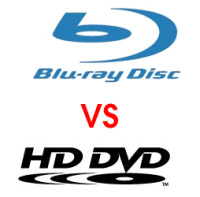 Anonymous representatives of two movie studios backing Blu-ray technolgy are reportedly claiming Paramount is inflating sales figures for the Transformers HD DVD release. Based on Paramount's numbers the Title sold more copies than any other hi-def release to date in both the first day and first week of sales. According to competing studio insiders that's not even possible.
Anonymous representatives of two movie studios backing Blu-ray technolgy are reportedly claiming Paramount is inflating sales figures for the Transformers HD DVD release. Based on Paramount's numbers the Title sold more copies than any other hi-def release to date in both the first day and first week of sales. According to competing studio insiders that's not even possible.
One studio source said "Here's the dumb lie: they've claimed to sell 100K in one day and 190K in one week. Exact point of sale data from 3 retailers that make up 62% of the high-def market show sales of 73K units for the week. Being very generous, they could possibly reach 125K-130K, which would barely set a record for HD-DVD." He added "It’s an outrage. They think they can say whatever they want and that no one will call them on it. They need to be called on it."
Data from a Nielsen Videoscan email does seem to cast suspicion on Paramount's numbers. Although no one from Paramount has disputed the Nielsen figures, at least one person explained that the additional units were sold by outlets like Amazon.com. Most Paramount employees dismissed the furor as simply more posturing by the Blu-ray camp.
Read more...
Written by Rich Fiscus @ 26 Oct 2007 11:47
 As expected, recent reports about Comcast's practice of discriminating against BitTorrent uploads have breathed new life into the Net Neutrality debate. On Friday U.S. Senators Byron Dorgan of North Dakota and Olympia Snowe of Maine called for hearings to discuss the companies' "power to discriminate against content."
As expected, recent reports about Comcast's practice of discriminating against BitTorrent uploads have breathed new life into the Net Neutrality debate. On Friday U.S. Senators Byron Dorgan of North Dakota and Olympia Snowe of Maine called for hearings to discuss the companies' "power to discriminate against content."
The pair sent Senator Daniel Inouye, chairman of the Commerce, Science, and Transportation committee, a letter saying "The phone and cable companies have previously stated that they would never use their market power to operate as content gatekeepers and have called efforts to put rules in place to protect consumers 'a solution in search of a problem.'"
Comcast has recently admitted to "delaying" file uploads, supposedly in order to ensure high speeds for other customers' surfing, however tests performed by the Associated Press and Electronic Frontier Foundation found that uploads routinely failed as a result of Comcast's network management.
Just a few months ago the issue of Net Neutrality was essentially dead in terms of possible legislation. The publicity sparked by Comcast's filtering, and especially from their non-denials, in which they only said they weren't blocking applications, which is true since they're only delaying content.
Read more...
Written by Rich Fiscus @ 26 Oct 2007 9:35
 Since the purchase of video download site Movielink to video rental giant Blockbuster was announced earlier this year there has been a lot of speculation as to the financial state of the service. Despite heavy Hollywood ties with ownerr that included most of the major movie studios, the service was never able to make a serious impact with consumers, or a profit for that matter.
Since the purchase of video download site Movielink to video rental giant Blockbuster was announced earlier this year there has been a lot of speculation as to the financial state of the service. Despite heavy Hollywood ties with ownerr that included most of the major movie studios, the service was never able to make a serious impact with consumers, or a profit for that matter.
Despite the service's less than stellar history, Blockbuster has big plans for it. Originally purchased as part of their bid to compete with online video rental leader Netflix, the company has indicated that the Movielink platform will be used for content delivery to a number of platforms from mobile phones to televisions.
However, according to independent auditor PricewaterhouseCoopers, Movielink's track record raises "substantial doubt about the company's ability to continue as a going concern." However, Blockbuster may be looking less toward profitabliity and more toward competition. In recent months Blockbuster has had to change the terms of their Total Access online DVD rental plans, which had made them the first company to actually make an impact on Netflix subscriber numbers. Unfortunately it came at a high price, and the company's purchase of Movielink is anticipated to eventually tie into their rental operations. No announcements have been made regarding possible tie-ins between Total Access and Movielink, but if things go well Blockbuster's marketing could substantially increase Movielink's public visibility, while Movielink might provide serious competition for the Watch Instantly feature available from rival Netflix.
Read more...
Written by Rich Fiscus @ 26 Oct 2007 12:34
 More than a week before its theatrical release, the movie American Gangster has shown up on P2P networks, and has even been spotted on DVD on the streets of Los Angeles for a mere $5. The movie, which stars Denzel Washington and Russell Crowe, follows such hits as Ratatouille, Sicko, and Hostel: Part II, which were also leaked on the internet before being officially released.
More than a week before its theatrical release, the movie American Gangster has shown up on P2P networks, and has even been spotted on DVD on the streets of Los Angeles for a mere $5. The movie, which stars Denzel Washington and Russell Crowe, follows such hits as Ratatouille, Sicko, and Hostel: Part II, which were also leaked on the internet before being officially released.
Wall Street Journal sources indicate Universal Studios, who owns the film, is confused about the source of the leaks because there weren't any advance copies distributed. Some internet sources have indicated that it's from a DVD Screener, which at one time was a common source for Oscar nominated movies, although its become less common since the Academy of Motion Picture Arts and Sciences began adding Watermarks to all DVDs sent to academy members. Other sites have reported that the copy is of low quality, which combined with Universal's statement of confusion would seem to indicate it's not actually a Screener.
Read more...
Written by Rich Fiscus @ 26 Oct 2007 12:33
 Start with some network "management" that hinders file sharing, add in some public criticism from consumer advocates, and a non-denial that sidesteps the question, and you may end up with just enough publicity to put the Net Neutrality debate back on the map. In an interview, congressman Rick Boucher, a Democrat from Virginia and long time fair use advocate, commented on Comcast's practice of interfering with P2P traffic.
Start with some network "management" that hinders file sharing, add in some public criticism from consumer advocates, and a non-denial that sidesteps the question, and you may end up with just enough publicity to put the Net Neutrality debate back on the map. In an interview, congressman Rick Boucher, a Democrat from Virginia and long time fair use advocate, commented on Comcast's practice of interfering with P2P traffic.
"Comcast has made a major mistake in attempting to hinder peer-to-peer file sharing as an aspect of its network management," Boucher said. "The inability of customers to (share files) significantly diminishes their ability to utilize the Internet for one of its most important applications, which is user-to-user content." He also noted that "file sharing is already being used for a wide variety of perfectly lawful and appropriate applications."
He did ndicate sympathy for Comcast's financial considerations, saying "Comcast obviously needs to engage in some aspect of network management. The company has Limited bandwidth, and there are times when there is more demand for service than the infrastructure can support." However, the congressman stressed that "(the) management needs to occur in a more evenhanded way" and that "(Comcast) should not engage in a blanket disqualification of any category of lawful applications."
Read more...
Written by Rich Fiscus @ 26 Oct 2007 12:25
 According to testimony before the Senate Commerce Committee yesterday, if the royalty rates approved by the Copyright Royalty Board (CRB) in March aren't overturned, internet radio stations are finished. The testimony from Pandora founder Tim Westergren was part of a hearing called to assess the state of negotiations between webcasters and SoundExchange, the recording industry royalty colllection agency which originally proposed the new rates. Although webcasters have claimed negotiations between the two sides have stalled, SoundExchange representatives have indicated that there are merely delays while they assess the financial situations webcasters find themselves in.
According to testimony before the Senate Commerce Committee yesterday, if the royalty rates approved by the Copyright Royalty Board (CRB) in March aren't overturned, internet radio stations are finished. The testimony from Pandora founder Tim Westergren was part of a hearing called to assess the state of negotiations between webcasters and SoundExchange, the recording industry royalty colllection agency which originally proposed the new rates. Although webcasters have claimed negotiations between the two sides have stalled, SoundExchange representatives have indicated that there are merely delays while they assess the financial situations webcasters find themselves in.
"The [higher] rates are actually currently in effect, and we are paying them," said Michele Husak, director of communications for Pandora. "But we're only doing so because we believe that rationality will prevail and that they will be lowered. Negotiations are slowly on-going." Husak also indicated that at some point Pandora, one of the more successful webcasters, will no longer be able to afford the royalty payments and would be forced to shut down.
Meanwhile, Westergren pushed for the passage of the Internet Radio Equality Act, which many webcasters see as their best chance for a fair Resolution to the issue. Even assuming SoundExchange officials realize that the new royalties aren't realistically possible to collect, it may require legislation to convince the agency to back down without losing face.
Read more...
Written by Rich Fiscus @ 26 Oct 2007 12:24
 It appears that University of Tennessee student's interesting legal strategy of thwarting RIAA attempts to discover his identity have been blocked. The student's identity will soon be released to the RIAA after a judge ruled that the information isn't protected under the Federal Educational Rights and Privacy Act (FERPA).
It appears that University of Tennessee student's interesting legal strategy of thwarting RIAA attempts to discover his identity have been blocked. The student's identity will soon be released to the RIAA after a judge ruled that the information isn't protected under the Federal Educational Rights and Privacy Act (FERPA).
The student's lawyer had argued that under FERPA the student's identity could only be revealed if he explicitly waived his rights, but the judge decided that most of the information sought by RIAA lawyers is already categorized as "directory information" which can be released without student permission. This information includes his name, address, phone number, and email address. Judge Guyton also ruled that since the information about a student's computer doesn't count as an educational record at all, MAC and IP address disclosure isn't affected by FERPA at all.
Despite winning this battle, the war against file sharers at universities continues to be contentious. Many students, and even some university officials, feel that the RIAA has repeatedly overstepped legal boundaries while pursuing students on college networks. At different times, various institutions have complied with subpoenas without comment, fought the subpoenas in court, or supplied Limited information.
Read more...
Written by Rich Fiscus @ 25 Oct 2007 11:53
 A new NPD Group study indicates a promising future for next-gen video formats, but only if a single format is available at a lower price than players currently sell for.
A new NPD Group study indicates a promising future for next-gen video formats, but only if a single format is available at a lower price than players currently sell for.
More than 65% of all respondents to the survey indicated no plans to buy either a Blu-ray or HD DVD player. The single most common reason cited was high player prices. Nearly as many people said they see no need to replace their DVD player and library of movies, and 60% are happy with the hi-def movies from satellite or cable. More than half said they're waiting for a single format to invest in and will wait for Resolution of the war between Blu-ray and HD DVD. Just over 10% indicated they're extremely likely to buy a player.
Russ Crupnick, VP and senior analyst with NPD Entertainment, cautioned that the rate at which early Blu-ray and HD DVD customers are replacing their DVDs is likely misleading for projecting typical consumer behavior. He said “Once you get to the mainstream consumer, we’re not sure they’re going to be all that anxious to replace their libraries.” However, he still expects hi-def disc formats to eventually catch on, although he cautions “without improving the benefit proposition and probably driving down hardware prices even more it’s going to be a longer haul than we’d probably like.”
Read more...
Written by Rich Fiscus @ 24 Oct 2007 10:07
 Analyst David Barden predicts that Verizon's FiOS network, which launched two years ago and now boasts growth of more than 10,000 customers in an average week, will have two million customers by year's end.
Analyst David Barden predicts that Verizon's FiOS network, which launched two years ago and now boasts growth of more than 10,000 customers in an average week, will have two million customers by year's end.
Although cable companies didn't take Verizon seriously when they first announced the service, no one is laughing any more. "Verizon is real," Steve Burke, Comcast Corp's chief operating officer, said last month at an investor conference. "Verizon is taking video customers from us."
FiOS may represent the most serious challenge yet to the dominance of cable companies for television and high speed internet customers. While cable companies have been able to hold on to internet customers and also gain market share as phone providers, traditional phone companies have been less successful with DSL and video offerings. Based on current and projected sales figures, Verizon is likely to break into the top 10 television providers, behind 6 cable companies and 2 satellite television providers.
With their non-traditional all fiber approach Verizon has some definite advantages over traditional cable television services. Not only does their pure fiber connection offer more bandwidth for everything from TV channels to internet uploading and downloading. The company also offers unique DVRs that can send recordings to different televisions.
Read more...
Written by Rich Fiscus @ 24 Oct 2007 11:45
 Sony Online Entertainment will be working with Sony Computer Entertainment to deliver movies, television, and music to PS3 gamers.
Sony Online Entertainment will be working with Sony Computer Entertainment to deliver movies, television, and music to PS3 gamers.
“We are building a software infrastructure to distribute video and music, more particularly video, through the PlayStation Network,” Sony CEO Howard Stringer said in an interview with the Financial Times. He wouldn't give a projected date for launching the new distribution Channel, but did say Sony will know more in early 2008. He added “We are trying to get our devices to talk to each other efficiently. PlayStation Network should migrate from gadget to gadget. But initially it starts with PlayStation devices and then to TV and beyond. That’s the goal.”
Despite having a great deal of movie, television, and music content of their own, Sony hasn't managed to build a channel to distribute content to PS3 users, although they envision the console as more of a home entertainment center. By comparison, Microsoft's Xbox Live service already allows Xbox 360 owners to buy television episodes and rent movies.
Although Xbox Live Video Marketplace already has deals with many major studios, they don't have access to Sony's properties, which the new Playstation service will.
Read more...
Written by Rich Fiscus @ 24 Oct 2007 11:02
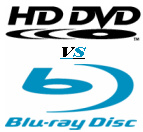 Despite being outsold nearly 2 to 1 by Blu-ray in the first three quarters of this year, some analysts expect HD DVD to make a strong finish in the fourth quarter. They point to sales records set by the HD DVD release of Transformers by Paramount Pictures.
Despite being outsold nearly 2 to 1 by Blu-ray in the first three quarters of this year, some analysts expect HD DVD to make a strong finish in the fourth quarter. They point to sales records set by the HD DVD release of Transformers by Paramount Pictures.
Earlier this year another HD DVD release, 300, generated a lot of buzz until it was released on Blu-ray and the HD DVD numbers were quickly eclipsed. Ironically, until August Paramount also released movies in both formats, which could conceivably have dealt yet another blow to HD DVD if they hadn't decided to release on HD DVD exclusively.
Still, a single title can't determine the success of an entire format, and this holiday season may be a turning point for either one. Besides competition for standalone player sales, the success or failure of Sony's PS3 will also have some effect since it doubles as a Blu-ray player.
"It's going to be 2008 before the dust will really starts to settle. For now, its like watching a yacht race," said Gerry Kaufhold, an analyst with the In-Stat research firm.
Read more...
Written by Rich Fiscus @ 24 Oct 2007 10:33
 The Senate Commerce Committee is holding a hearing today where webcasters plan to make a case for the Internet Radio Equality Act, which would legislate more reasonable royalty rates than were approved earlier this year by the U.S. Copyright Royalty Board.
The Senate Commerce Committee is holding a hearing today where webcasters plan to make a case for the Internet Radio Equality Act, which would legislate more reasonable royalty rates than were approved earlier this year by the U.S. Copyright Royalty Board.
According to webcasters, negotiations with SoundExchange, the music label backed royalty collection agency, have stalled. "We made a royalty rate proposal on Aug. 23, and we have not heard a reply back," said Jonathan Potter, executive director of the Digital Media Association, which is negotiating on behalf of a group of 27 large Internet radio providers.
Richard Ades, a spokesman for SoundExchange, said "We're moving as fast as we can considering there are so many parties involved."
The webcasters' concerns started at the beginning of March when the Copyright Royalty Board (CRB) accepted a SoundExchange plan for internet radio royalties without a single change. The rates, which would force webcasters to pay significantly higher royalties than are currently mandated for either terrestrial or satellite radio, seem to have been calculated in anticipation of some kind of adjustment by the CRB, taking into account the actual financial situation of webcasters.
Read more...
Written by Rich Fiscus @ 24 Oct 2007 9:43
 Lord Triesman, parliamentary Under Secretary for Innovation, Universities, and Skills in the U.K. said yesterday that if ISPs don't get copyright infringement by their customers under control, legislation will be passed to resolve the issue. He told the BBC "If we can't get voluntary arrangements we will legislate."
Lord Triesman, parliamentary Under Secretary for Innovation, Universities, and Skills in the U.K. said yesterday that if ISPs don't get copyright infringement by their customers under control, legislation will be passed to resolve the issue. He told the BBC "If we can't get voluntary arrangements we will legislate."
"For the most part I think there are going to be successful voluntary schemes between the creative industries and ISPs. Our preferred position is that we shouldn't have to regulate," he said.
A spokesman for the the Internet Service Providers Association says "ISPs cannot monitor or record the type of information passed over their network. ISPs are no more able to inspect and Filter every single Packet passing across their network than the Post Office is able to open every envelope." He added "ISPs deal with many more packets of data each day than postal services and data protection legislation actually prevents ISPs from looking at the content of the packets sent."
He did add, however "ISPA does not support abuses of copyright and intellectual property theft."
Read more...
Written by Rich Fiscus @ 23 Oct 2007 12:57
 Security experts are comparing the iPhone's security to that of Windows 95, which is to say it has none. "It really is an example of 'those who don't learn from history are condemned to repeat it'," says Dan Geer, vice president and chief scientist at security firm Verdasys.
Security experts are comparing the iPhone's security to that of Windows 95, which is to say it has none. "It really is an example of 'those who don't learn from history are condemned to repeat it'," says Dan Geer, vice president and chief scientist at security firm Verdasys.
The problem according to Charlie Miller, principal security analyst for Independent Security Evaluators, is that every program on the iPhone runs with root priviliges, meaning full access to everything on the phone. A vulnerability in the Safari browser discovered earlier this year by Miller and his colleagues has already been addressed by Apple, but the root permission problem, also criticized in the paper detailing the Safari vulnerability, remains.
Apple has announced plans to release a public SDK so anyone can develop iPhone applications. As part of the announcement, CEO Steve Jobs said there were security issues being addressed in conjunction with the release. Hopefully that means OS updates that resolve this vulnerability. Access to data on an iPhone or its connection to a mobile phone/SMS/data network could be much more than an annoyance for iPhone users and mobile providers alike.
Read more...
Written by Rich Fiscus @ 23 Oct 2007 12:32
 Industry analysts are predicting the wildest promotional period yet for flat panel televisions during this year's Christmas shopping season. In particular 720p and 1080p displays are expected to get the highest visibility.
Industry analysts are predicting the wildest promotional period yet for flat panel televisions during this year's Christmas shopping season. In particular 720p and 1080p displays are expected to get the highest visibility.
Some analysts believe plasma technology in particular will see a high sales volume. “Black Friday 2006 signified a passing of the torch from plasma to LCD at 42-inch,” said Sang Tang, HDTV research analyst with Current Analysis West, an NPD Group company. “This year, expect plasma to turn the tables on LCD. Plasma will be very aggressive at 50-inches and will maintain a foothold on the high-end market. In other words, there won't be a flat-panel shakeout this year. LCD maintains its mass consumer appeal, while plasma takes the high-end market.”
Tang also sees plasma to force a shift in focus for rear projection (RPTV) displays. In the recent past high end RPTV displays have been able to compete with plasma on the basis of offering 1080p. With plasma manufacturers focusing on that market segment, future RPTV development may need to be oriented toward lower end displays to remain viable. As analog television is replaced in many countries by digital, this could conceivably be a large market to conquer within the next 1-3 years.
Read more...
Written by Rich Fiscus @ 23 Oct 2007 11:32
 Although there's much debate over the effect of music downloads on popular music sales, a much more interesting trend may be emerging which is specific to music that's not so popular. Although not in any danger of selling millions of copies or climbing the popular music charts, classical music has silently increased in popularity in the age of downloadable music.
Although there's much debate over the effect of music downloads on popular music sales, a much more interesting trend may be emerging which is specific to music that's not so popular. Although not in any danger of selling millions of copies or climbing the popular music charts, classical music has silently increased in popularity in the age of downloadable music.
According to Chris Bell, Director of Worldwide Product and Music Marketing for iTunes, the increased interest in classical music and other relatively fringe musical styles appears to be the product of the online marketplace where it's easy to listen to samples of different musical styles. He also says that classical music in particular sells better online than in traditional retail operations, although he won't go into details about the exact figures.
Besides the ease of finding and previewing music on the internet, some non-traditional classical music purchases certainly come as a result of internet anonymity. Without having to go to a brick and mortar store, inhibitions about asking meaningful questions and embarassment, either from not knowing the first thing about classical works or from being seen perusing a store's classical selection become non-factors.
Read more...
Written by Rich Fiscus @ 23 Oct 2007 11:29
 An NBC representative confirmed on Monday that the network will no longer be posting video clips on YouTube to promote their television shows. While the move shouldn't surprise anyone who's followed the saga of NBC Universal's ongoing love/hate relationship with the viral video leader, the timing still seems a little odd.
An NBC representative confirmed on Monday that the network will no longer be posting video clips on YouTube to promote their television shows. While the move shouldn't surprise anyone who's followed the saga of NBC Universal's ongoing love/hate relationship with the viral video leader, the timing still seems a little odd.
According to rumours that were confirmed by NBC yesterday, the network's YouTube Channel was discontinued over the weekend to prepare for the launch of the NBC Universal and News Corp. joint video venture called Hulu. What's strange is that Hulu hasn't even launched yet, leaving what appears to be a huge marketing void that will last until either Hulu is successful or NBC decides to return to distribution through third parties like YouTube.
YouTube certainly hasn't given up on the partnership. In an email YouTube spokesman Ricardo Reyes said "NBC informed us on Friday that they were taking down their branded channel and clips." He added "Our relationship with NBC was a YouTube success story, so we hope NBC decides to post more original content and stay engaged with our users."
Read more...
Written by Rich Fiscus @ 23 Oct 2007 11:17
 You may have heard that Writers Guild of America (WGA) members have voted to authorize a strike at month's end after months of failed negotiations with the Alliance of Motion Picture and Television Producers (AMPTP). What isn't as well publicized is that one point of contention is royalty arrangements for online TV show distribution.
You may have heard that Writers Guild of America (WGA) members have voted to authorize a strike at month's end after months of failed negotiations with the Alliance of Motion Picture and Television Producers (AMPTP). What isn't as well publicized is that one point of contention is royalty arrangements for online TV show distribution.
The problem appears to be that content providers want to use online distribution as an excuse to pay less for the same product. They've suggested paying royalties as if internet television were the same as home video, which would result in lower royalties for distributing recently aired TV shows online than airing them on television.
The problem is that model doesn't accurately represent the public's viewing habits. While there are certainly a small number of consumers renting or purchasing older TV episodes online, by far the biggest market segment for online TV viewing consists of people watching content from within the last few weeks, which is the same model most television networks are using to determine what to provide free on their websites.
John Bowman, chair of the WGA negotiating committee says that it makes sense for payments to be at least as high for distribution on the internet, Cell phones, and other new and expanding outlets as they are for traditional TV broadcasting. "Management, however, has refused to accept this interpretation, and has even threatened to do away with residuals altogether in this new medium, or to impose the outdated and unfair home video formula," said Bowman in a statement. "Given that residual income can amount to between 20 to 50 percent of a writer's income, we clearly can't allow management unilaterally to dictate this most essential contract term."
Read more...
Written by Rich Fiscus @ 23 Oct 2007 12:52
 A new service called BlinkBox is advertising commercial movie downloads using something called blinks. According to their website, "A ‘blink’ is a clip from a film or TV show with your personal message. Say whatever you want with a blink. You can scare your mate with a blink from The Exorcist or send them off laughing with a blink from National Lampoon’s Vacation."
A new service called BlinkBox is advertising commercial movie downloads using something called blinks. According to their website, "A ‘blink’ is a clip from a film or TV show with your personal message. Say whatever you want with a blink. You can scare your mate with a blink from The Exorcist or send them off laughing with a blink from National Lampoon’s Vacation."
BlinkBox offers movies for rental (limited viewing period), purchase (unlimited viewing period), or burning with a standard DVD burner. Movies are stored on customer computers, but must be viewed on a single computer associated with the purchaser's BlinkBox account. Scenes from available movies can also be either viewed on the BlinkBox website or, for a small fee, sent to a mobile phone via SMS text message. Clips sent via SMS are preceded by a short ad and followed by a link to purchase the whole movie for download.
Downloading full films or sending text messages requires setting up an account first, and according to the site's terms of service all SMS recipients need to give their permission first, although that's left to the sender to take care of. Messages do indicate they originate from a phone number supplied by the sender.
Read more...
Written by Rich Fiscus @ 22 Oct 2007 11:00
 eMusic's bid to compete with iTunes in audiobook sales suffered a setback when Penguin Audio, one of five publishers initially signed to provide audiobooks, backed out and withdrew 150 titles that were to be available. According to Dick Heffernan, publisher of Penguin Audio, the problem is DRM, or more accurately eMusic's lack of it.
eMusic's bid to compete with iTunes in audiobook sales suffered a setback when Penguin Audio, one of five publishers initially signed to provide audiobooks, backed out and withdrew 150 titles that were to be available. According to Dick Heffernan, publisher of Penguin Audio, the problem is DRM, or more accurately eMusic's lack of it.
Heffernan said “At this moment we’re not going to have our titles on eMusic or with anyone else who sells non-DRM until the landscape shakes out and we feel very comfortable and confident that our titles will not be pirated.” He indicated that while he had originally approved the deal as an experiment, it was rejected by his superiors.
“We wanted to take a chance and see how it would work out, and our very senior management at this moment decided that we didn’t want to do that,” Mr. Heffernan said. “We hope to possibly come to some kind of agreement down the road.”
But according to Random House Audio publisher Madeline McIntosh piracy hasn't been a problem so far. she said a piracy monitoring firm has yet to find any eMusic copies of their audiobooks on file sharing sites.
Read more...
Written by Rich Fiscus @ 22 Oct 2007 10:59
 Sony Pictures TV is trying to cash in on the minisodes they debuted both on MySpace and a dedicated minisodes site called the Minisodes Network, in June. A minisode is a television episode that's been condensed to just a few minutes. Today distribution expands to AOL, Joost, and Sony's answer to YouTube - Crackle. Verizon will also make minisodes available on their wireless network.
Sony Pictures TV is trying to cash in on the minisodes they debuted both on MySpace and a dedicated minisodes site called the Minisodes Network, in June. A minisode is a television episode that's been condensed to just a few minutes. Today distribution expands to AOL, Joost, and Sony's answer to YouTube - Crackle. Verizon will also make minisodes available on their wireless network.
Like on MySpace, viewing on Joost and AOL will be sponsored by ads from Honda. On Crackle the sponsor will be Pepsi, who plan to include the site in a massive advertising campaign for new retro cans. The cans will also promote the website by giving the web address. Pepsi's interest in the partnership was sparked by the classic TV shows used to create minisodes, which are now expanding to include Bewitched, I Dream of Jeannie, and The Jeffersons.
Advertisers like Pepsi are finding innovative uses for online video, which allows them to target campaigns not only toward specific content, but also toward a specific delivery method. This may be advantageous for consumers as advertisers attempt to cater to the way viewers prefer to watch TV, rather than putting the restraints of DRM ahead of nearly all other concerns.
Read more...
Written by Rich Fiscus @ 22 Oct 2007 9:56
 SanDisk hopes to revolutionize the way consumers get video out of their computers to watch on a television. Unlike traditional systems which require that the user either transform video to a standalone player format like DVD or figure out how to connect their computer to the TV directly, SanDisk's new TakeTV only requires that you be able to make the same connections required by a DVD player and a USB flash drive. If you can do both of those things you have all the technical expertise required to use it.
SanDisk hopes to revolutionize the way consumers get video out of their computers to watch on a television. Unlike traditional systems which require that the user either transform video to a standalone player format like DVD or figure out how to connect their computer to the TV directly, SanDisk's new TakeTV only requires that you be able to make the same connections required by a DVD player and a USB flash drive. If you can do both of those things you have all the technical expertise required to use it.
TakeTV, originally called USBTV when it was unveiled earlier this year at CES (the Consumer Electronics Show) in Las Vegas, essentially consists of two components. For your TV there's a special dock that connects much like a DVD player or cable/satellite receiver. Once connected it's intended to stay with your television. The second piece is a USB flash drive with either 4GB or 8GB of storage (depending on which model you buy). Once you plug the drive into your computer you can simply drag video files to it. Once your video is copied you can simply unplug it and plug it into the dock for viewing.
Read more...
Written by Rich Fiscus @ 22 Oct 2007 9:34
 In an interview with Wired magazine, hacker Robert Anderson give details about his association with the MPAA, whom he says promised him money and power in exchange for providing confidential information about BitTorrent site TorrentSpy.
In an interview with Wired magazine, hacker Robert Anderson give details about his association with the MPAA, whom he says promised him money and power in exchange for providing confidential information about BitTorrent site TorrentSpy.
According to Anderson, he began working with the MPAA in 2005 after a failed business venture with TorrentSpy founder Justin Bunnell. He says he emailed the MPAA offering to work with them to help fight piracy, and that's where things start getting interesting.
When he started working with MPAA legal director Dean Garfield he mentioned that he had "an informant" who could intercept any email communication on TorrentSpy servers. As it turned out that informant was him, and he did provide the information after hacking into the company's mail server and arranging to have a copy of every email passing through the machine forwarded to him.
The information provided by Anderson was eventually instrumental in bringing a copyright infringement suit against TorrentSpy, while the methods used to collect it sparked a countersuit from Justin Bunnell, claiming the MPAA illegally obtained the information. According to the suit, "Dean Garfield expressly told the informant (Anderson), on behalf of the MPAA, regarding the information that he requested, 'We don't care how you get it.'" Bunnell's suit alleges that Garfield knew, or should have known, that the information was collected illegally.
Read more...
Written by Rich Fiscus @ 22 Oct 2007 12:54
 If it's indeed true that there are lies, damned lies, and statistics, then surely all the studies that have been published about the "real" financial effect of P2P file sharing on the music industry fall into the latter category. It seems there's another one to add to the pile. This one was compiled by Capgemini, a consulting company that specializes in helping businesses transition between different technologies.
If it's indeed true that there are lies, damned lies, and statistics, then surely all the studies that have been published about the "real" financial effect of P2P file sharing on the music industry fall into the latter category. It seems there's another one to add to the pile. This one was compiled by Capgemini, a consulting company that specializes in helping businesses transition between different technologies.
Capgemini's report, which analyzes falling British music industry revenues since 2004, indicates that nearly the entire difference can be explained by the transition from CDs to downloads and heavily discounted CDs. File sharing is noted as having either a neutral or net positive effect on profits.
Although the report itself is confidential, even if it weren't would we really know anything more than we do now? An organization (Capgemini) attributes market changes to factors related to their expertise. However, this simple explanation doesn't seem to take into account other obvious factors such as competition from movies and video games. It seems that yet another study has just made yet another educated but ultimately flawed guess about what's behind consumer trends.
Read more...
Written by Rich Fiscus @ 22 Oct 2007 12:23
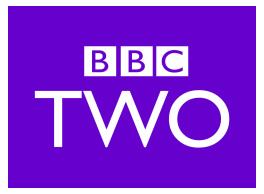 Last week Whitehaven, on England's northwest coast, became the first region in the U. K. to begin the transition away from analog television when BBC Two's signal was shut off, to be replaced shortly after with multiple digital channels. By mid-November all analog TV signals in the town will be replaced as well.
Last week Whitehaven, on England's northwest coast, became the first region in the U. K. to begin the transition away from analog television when BBC Two's signal was shut off, to be replaced shortly after with multiple digital channels. By mid-November all analog TV signals in the town will be replaced as well.
Unlike the U. S. or Japan where the entire country will lose all analog signals at one time, in the U. K. the transition will be gradual. It won't be complete for another 5 years. But don't take the transition's slow pace as a sign that the public won't be prepared. According to Digital U. K., the government entity created to shephard the country through this transition, more than 80% of primary television sets are already digital.
"We were the first to plan the switch to digital TV, but other countries have overtaken us," acknowledges Digital U.K.'s director of corporate affairs Simon Crine. "Most of Sweden, Finland and Germany have made the switch to digital. France is in the middle of planning, but they are likely to complete the switch before us."
Source: Variety
Written by Rich Fiscus @ 21 Oct 2007 11:56
 With no official word from NBC Universal, the NBC YouTube channel has mysteriously disappeared. It's rumored that the move is in preparation for NBC's joint venture with Fox owner News Corp (Hulu). which is supposed to enter private beta this month.
With no official word from NBC Universal, the NBC YouTube channel has mysteriously disappeared. It's rumored that the move is in preparation for NBC's joint venture with Fox owner News Corp (Hulu). which is supposed to enter private beta this month.
Although Hulu's launch would be a logical time for such a move, with no announced date for the service to go live for the general public, it's more likely part of a larger strategy which includes both Streaming and download options for several hit shows. Their overall plan seems to be bringing online delivery in-house for maximum control.
This stands in stark contrast to the strategy CBS seems to be pursuing. Like NBC, CBS has made television shows available on their website, howevery they've also tapped the opportunity to reach more viewers through online television provider Joost. This would appear to give them a distinct advantage since many Joost viewers probably aren't even aware that NBC (or CBS) has television shows available for free online.
Written by Rich Fiscus @ 21 Oct 2007 10:30
 Vizio's strategy to build low priced HD displays has taken them from a virtually unknown manufacturer to one of the top consumer flat panel manufacturers. In order to make such an impressive splash on store shelves they've taken an approach that could leave them at the mercy of their suppliers at any time.
Vizio's strategy to build low priced HD displays has taken them from a virtually unknown manufacturer to one of the top consumer flat panel manufacturers. In order to make such an impressive splash on store shelves they've taken an approach that could leave them at the mercy of their suppliers at any time.
Using a business model reminiscent of up and coming PC manufacturers a decade ago, Vizio depends on high volume, heavily discounted sales and an unprecedented market boom in several hundred dollar televisions in order to maintain profit margins. While this strategy has clearly been beneficial for consumers over the last few months, it remains to be seen what the long term affect will be on Vizio's bottom line.
A look at the changes that accompanied the computer boom market of the late 1990s should give anyone with a financial stake in Vizio some pause. The most obvious problem with the strategy, as borne out by companies like eMachines and Gateway, is that no boom market lasts forever. Like PCs a few years ago, more people are buying HDTVs than have at any time in the past, or are likely to at any time in the future. In order for a company like Vizio to thrive beyond the inevitable sales decline, they're business model will need to adapt.
Read more...
Written by Rich Fiscus @ 21 Oct 2007 9:11
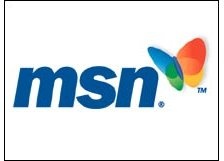 MSN and NBC Universal will be premiering a new online series called The Celebrity Pet Dish. This follows the success of another NBC Universal produced series available on MSN, A Big Life With Sissy Biggers, getting ready to begin a third season
MSN and NBC Universal will be premiering a new online series called The Celebrity Pet Dish. This follows the success of another NBC Universal produced series available on MSN, A Big Life With Sissy Biggers, getting ready to begin a third season
“In collaboration with NBCU, we’ve developed some great content,” said Rob Bennett, general manager of entertainment, video and sports at MSN. “We’ve seen a positive response from MSN Video users to ‘A Big Life’ and are happy to be rolling out the third season in addition to launching ‘Celebrity Pet Dish.’ Our MSN Originals platform continues to grow, and we continue to be committed to bringing our more than 465 million monthly MSN users the best content out there.”
As online video viewing increases and DVR usage increases steadily, online television is quickly becoming a hot commodity. Although a lot of the most successful content is already available on television network websites, the future of those networks, and their programming, is increasingly in question.
While the eventual model may still revolve around a few companies distributing most content, the existing companies are still working out deals to make that content widely available on the internet. Creating more internet-only shows seems like a logical extension of that model that we're likely to see a lot more of if it continues to prove successful.
Read more...
Written by Rich Fiscus @ 19 Oct 2007 10:46
 The Associated Press has confirmed what some Comcast customers have been claiming; that the company interferes with the flow of P2P uploads on their network. Comcast officials have denied that this practice occurs as recently as August.
The Associated Press has confirmed what some Comcast customers have been claiming; that the company interferes with the flow of P2P uploads on their network. Comcast officials have denied that this practice occurs as recently as August.
Comcast spokesman Charlie Douglas indicated at that time that customers "downloading and sharing video, photos and other rich media" were using their internet service "as intended." His only comment to the AP's new test results was that "Comcast does not block access to any applications, including BitTorrent." Of course blocking uploads hardly blocks access to the program.
Based on Douglas' past comments, this doesn't appear to be a case of ISP censorship, because they don't really seem to care what's being uploaded from their network. They're just trying to sustain high connection speeds for all their customers without adding a lot of additional bandwidth.
Instead of treating file uploads as a nuisance to be stamped out, broadband ISPs might do well to take the opportunity to explore how P2P traffic affects their network, and find optimizations that can help alleviate speed issues with the least amount of financial overhead. With streaming video already gaining a hold and true IPTV applications being marketed to the general public in some areas, it seems like a sure bet that a glut of traffic is coming soon.
Read more...
Written by Rich Fiscus @ 19 Oct 2007 12:54
 On Thursday a senior Chinese intellectual property enforcement official made a statement essentially indicating that China's intellectual property (IP) enforcement problems aren't really anyone else's business, and that other countries shouldn't politicize it.
On Thursday a senior Chinese intellectual property enforcement official made a statement essentially indicating that China's intellectual property (IP) enforcement problems aren't really anyone else's business, and that other countries shouldn't politicize it.
"Is IPR protection a problem? Yes, it is. But is it as serious as some say? Not necessarily. To a greater degree, it's hyped-up, politicized. We cannot accept that," said Tian Lipu, head of the Chinese government's intellectual property rights enforcement, responsible for cracking down on piracy.
He also compares China's current situation with that of countries like the Britain or the U. S. in the past, saying "How long did it take developed countries? 300 years in the case of countries like Britain, or 200 years in the United States," he said. "One generation is not enough here. If you ask me, I estimate it will take three to five generations." He added "In fact, if China does not do well, the biggest victim will be China itself." That's a statement that IP holders will certainly agree with.
In the end though, Tian says the Chinese government isn't worried about a U. S. WTO complaint against them for lax IP enforcement. He said "I think China is not scared about this. The facts will prove our point of view."
Read more...
Written by Rich Fiscus @ 19 Oct 2007 12:27
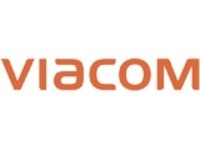 Media giant Viacom is starting to take better advantage of their vast range of television content by putting clips from Comedy Central hit The Daily Show online. CEO Philippe Dauman said "We believe in following the consumer. We've always done that in our history."
Media giant Viacom is starting to take better advantage of their vast range of television content by putting clips from Comedy Central hit The Daily Show online. CEO Philippe Dauman said "We believe in following the consumer. We've always done that in our history."
Also according to Dauman, the Daily Show clips are just the beginning. Certainly Viacom has a lot of content that should be attractive to advertisers. YouTube's explosive growth, which was fueled in part by Viacom owned material, has generated a lot of excitement among advertisers who are growing uncomfortable with the number of consumers skipping commercials with their DVRs.
With channels like Comedy Central, MTV, VH1, Nickelodeon, and TV Land, Viacom has plenty of content at their disposal. They've already started working with outlets like Joost to distribute video online. If the trend towards increased online video viewing increases, established media companies like Viacom have an opportunity to develop new distribution models for their catalogs. At the same time, advertisers have a chance to meet a more precisely selected, although probably smaller audience.
Source: Cnet
Written by Rich Fiscus @ 18 Oct 2007 11:11
 Although they've survived years of legal battles with copyright holders, credit card companies, and international pressure, Russian websites selling copyrighted music without the copyright holder's permission may finally shut down in a bid for the country to gain entrance into the World Trade Organization.
Although they've survived years of legal battles with copyright holders, credit card companies, and international pressure, Russian websites selling copyrighted music without the copyright holder's permission may finally shut down in a bid for the country to gain entrance into the World Trade Organization.
Sites like the now infamous Allofmp3.com do pay royalties to a Russian licensing body. Unfortunately, that body isn't sanctioned by music labels to collect royalties for them, which explains why music can be sold at a fraction of what mainstream stores like iTunes would pay in royalties. In the past, Allofmp3 has successfully defended their licensing practices in Russian courts, which do recognize the Russian Multimedia and Internet Society (ROMS) as a legitimate royalty collection agency.
That hasn't stopped the music industry from applying pressure on world governments, especially the United States, to put pressure of their own on Russia to crack down on the problem. By joining the WTO Russia would make it easier to do business from within the country with other 150 WTO members. This gives them ample incentive to take piracy seriously. The question now is whether they'll be able to back up a tough stance with effective enforcement. Until now they haven't been successful.
Read more...
Written by Rich Fiscus @ 18 Oct 2007 10:59
 Despite their humiliating retreat in the P2P copyright infringement case against Tanya Anderson, the RIAA is acting as though they won the case and arguing in court that they shouldn't have to pay her legal bills because she's probably guilty.
Despite their humiliating retreat in the P2P copyright infringement case against Tanya Anderson, the RIAA is acting as though they won the case and arguing in court that they shouldn't have to pay her legal bills because she's probably guilty.
As crazy as it sounds, RIAA lawyer William Patton wrote in his brief to the judge deciding the matter "It would be an extraordinary coincidence indeed if this defendant had nothing to do with infringement at issue in this matter." That's right. The RIAA is saying she shouldn't be treated as though she was exonerated when they dropped the case for a lack of evidence. And the legal argument appears to be that they're reasonably sure they're right. What the legal precedent for such an argument would be is unclear at this time.
Meanwhile, Anderson's lawyers have said her legal tab "may exceed the amount the RIAA is publicly crowing about in the absurd verdict against Jammie Thomas." Of course, the exact amount in fees they can collect would be up to the judge.
Anderson plans to use the money to pay for a countersuit she plans to file against the RIAA. That countersuit, also in the Oregon federal court, seeks class-action status to represent "those who were sued or were threatened with suit by defendants for file-sharing, downloading or other similar activities, who have not actually engaged in actual copyright infringement." The lawsuit alleges "the class is comprised of many thousands of individuals."
Read more...
Written by Rich Fiscus @ 18 Oct 2007 10:51
 While studios like Sony would like you to believe that their movies will only be available on Blu-ray, it turns out that many Blu-ray only titles in the U. S. are already available on HD DVD in other countries.
While studios like Sony would like you to believe that their movies will only be available on Blu-ray, it turns out that many Blu-ray only titles in the U. S. are already available on HD DVD in other countries.
Don't take this as a sign that Sony, or any other studio, has given up on the Blu-ray format. In fact the the dual format releases are due to distribution agreements for movies financed by multiple studios. For example, the movie Basic Instinct was produced jointly by Sony owned Tri-Star and France's Canal Plus. Since Canal Plus, an HD DVD backer, has distribution rights in France, that's the format used in that country. If you're in the U. S. you simply need to find someone willing to sell you a copy. With the proliferation of online shopping, and American companies already importing foreign movies for sale in the U. S., finding a supplier for these releases isn't a problem.
Although there are also movies from HD DVD studios appearing on Blu-ray, owners of those players aren't quite as excited about the prospect. That's because unlike HD DVD, Blu-ray uses region coding. Region coding was already one of DVD's most contreversial features, as it's designed to control access to content by designating a particular area of the world where a disc can be played. Even though a North American Blu-ray player and HDTV are perfectly capable of reading and displaying the content, all players respect the region coding, effectively making coasters of foreign Blu-ray releases.
Read more...
Written by Rich Fiscus @ 18 Oct 2007 12:16
 On Tuesday, Movie Gallery, the second leading brick and mortar video rental chain in the U. S., filed for Chapter 11 bankruptcy (reorganization) protection, hoping to turn around an operation having problems competing with online movie rentals from both Netflix and Blockbuster. Late in the day the company received court approval to access $140 million dollars of financing in order continue paying employees and vendors.
On Tuesday, Movie Gallery, the second leading brick and mortar video rental chain in the U. S., filed for Chapter 11 bankruptcy (reorganization) protection, hoping to turn around an operation having problems competing with online movie rentals from both Netflix and Blockbuster. Late in the day the company received court approval to access $140 million dollars of financing in order continue paying employees and vendors.
"The company intends to work with its constituencies to exit bankruptcy as expeditiously as possible, while executing on its reorganization plans," said Movie Gallery.
Besides online DVD rental, Movie Gallery must also compete with Blockbuster in the world of traditional brick and mortar rental operations. Two years ago both companies were competing to buy the Hollywood Video chain, a competition which Movie Gallery eventually won. Blockbuster's biggest problem at that time was a poor showing before the FCC when they attempted to prove there were no monopoly concerns in play. Two years later, as Blockbuster loses money competing with Netflix and Movie Gallery is closing stores and filing for bankruptcy, that issue seems a little less salient.
Read more...
Written by Rich Fiscus @ 17 Oct 2007 11:45
 Cable operators and consumer electronics manufacturers can't seem to agree on what kind of communication should be standard for communications between cable boxes and other equipment. The two sides are preparing for a showdown as the FCC gets ready to consider a Consumer Electronics Association (CEA) proposal that would extend the current CableCard specs to allow external devices to actually control cable television devices.
Cable operators and consumer electronics manufacturers can't seem to agree on what kind of communication should be standard for communications between cable boxes and other equipment. The two sides are preparing for a showdown as the FCC gets ready to consider a Consumer Electronics Association (CEA) proposal that would extend the current CableCard specs to allow external devices to actually control cable television devices.
The CableCard standard was developed to create a standard interface for third party equipment to receive a signal from a cable television connection. Instead of putting the functionality all into a set-top box, it can be used to interface directly to devices like DVRs. The problem right now is that control of more advanced features, like VOD (Video On Demand) requires more user input than the CableCard standard allows.
In order to remedy this the CEA proposal, called DCR+, would simply add a standard interface to send instructions from CableCard connected devices to the cable television system. An alternate plan from the National Cable & Telecommunications Association (NCTA), also submitted to the FCC earlier this year, would involve the use of middleware, which would still create a standard interface for communicating with the cable system through a CableCard, but allow cable providers to connect to the middleware in whatever way they want. The NCTA calls their implemention OpenCable.
Read more...
Written by Rich Fiscus @ 17 Oct 2007 10:57
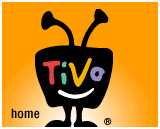 TiVo Series3 owners will finally by able to use the eSATA ports on their DVRs with the release of the newest version of the unit's software. Although some TiVo owners have been able to use these ports for some time now, until this update it required some OS hacking.
TiVo Series3 owners will finally by able to use the eSATA ports on their DVRs with the release of the newest version of the unit's software. Although some TiVo owners have been able to use these ports for some time now, until this update it required some OS hacking.
eSATA is a connection used for external SATA drives. It's supported by a variety of external hard drives and enclosures, and potentially makes adding storage to a TiVo, or even copying files to some other location (like a PC) much easier. However, the feature isn't going to be without limitations. Using the port with the official TiVo software will apparently require a "verified" hard drive. It's not clear yet exactly what that means, but additional details are expected soon.
The new update is also expected to include improvements to compatibility with Amazon.com's Unbox video download service. Support for Unbox was added to the units earlier this year.
More upgrades are expected in November, including TiVo to TiVo transfers, also known as multi-room viewing, and the addition of Tivo2Go support, which was previously only available on Series2 units. Tivo2Go allows the transfer of TiVo content to a PC across a network connection.
Read more...
Written by Rich Fiscus @ 17 Oct 2007 10:32
 As of the beginning of this month Best Buy, the largest electronics retailer in the United States no longer sells analog televisions. The move comes as retailers, and hopefully consumers, prepare for the end to analog broadcasts in February of 2009. The chain does plan to carry DTV converter boxes that some consumers will be receiving government vouchers for.
As of the beginning of this month Best Buy, the largest electronics retailer in the United States no longer sells analog televisions. The move comes as retailers, and hopefully consumers, prepare for the end to analog broadcasts in February of 2009. The chain does plan to carry DTV converter boxes that some consumers will be receiving government vouchers for.
“We are committed to helping people understand the digital television transition, and exiting the analog video business is one way we can help avoid confusion,” said Mike Vitelli, Best Buy’s electronics senior VP. “Customers can now be sure that any television they purchase at Best Buy will be fully compliant with the digital television transition. And for customers who aren’t in the market for a new television, we can help you find the best solution to meet your needs.”
This may be the smoothest part of the U.S. analog to digital cutover. Over the last few months there have been Congressional hearings and General Accounting Office reports criticizing the FCC's inaction in educating consumers regarding the upcoming switch. There's even been a mandate from the FCC requiring cable television providers to continue providing analog signals until 2012.
Read more...
Written by Rich Fiscus @ 17 Oct 2007 10:06
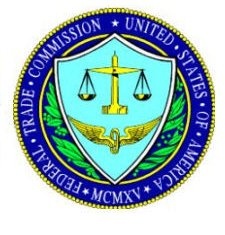 Members of the U.s. House of Representatives Committee on Oversight and Government Reform have sent a letter to Federal Trade Commission (FTC) regulators asking for a list of risks associated with the use of P2P software and networks.
Members of the U.s. House of Representatives Committee on Oversight and Government Reform have sent a letter to Federal Trade Commission (FTC) regulators asking for a list of risks associated with the use of P2P software and networks.
The letter stems from hearings the committee conducted earlier this year, where it was suggested by chairman Henry Waxman that P2P software poses a "national security threat" because of files containing sensitive government information which were shared inadvertantly by government employees and discovered during an audit of P2P services.
The interesting aspect of this story is the apparent lack of interest in cracking down on user installed software on government computers. Like almost all corporate IT operations, the government has strict regulations regarding the unauthorized installation of software by users. In fact, a Department of Transportation official testified at that hearing that before installing file sharing software on a government computer the user is required to get written permission first.
So if the point of this isn't to resolve national security issues uncovered during that investigation, what is it? According to the seven page letter the committee submitted to the head of the FTC they're worried that P2P software includes features that share files without the user realizing it. If, in fact, this is a problem - and it's a legitimate question to pose - the next obvious question is what it has to do with government oversight.
Read more...
Written by Rich Fiscus @ 16 Oct 2007 10:24
 The RIAA is suing North Dakota based Usenet.com, Inc., claiming the company "enables and encourages its customers to reproduce and distribute millions of infringing copies of Plaintiff's valuable copyrighted sound recordings."
The RIAA is suing North Dakota based Usenet.com, Inc., claiming the company "enables and encourages its customers to reproduce and distribute millions of infringing copies of Plaintiff's valuable copyrighted sound recordings."
The key to the RIAA argument seems to be the encouraging aspect more than anything else. In order to show liability on the part of the operator of the Usenet message board network, lawyers must establish not just that copyrighted content can and has been shared on Usenet, but also that Usenet.com encouraged this behavior.
Usenet.com's website clearly states that they don't monitor any identifying information about who uploads, downloads, or posts anything on the network of message boards, which the RIAA apparently plans to argue is an invitation to do illegal things.
"They started by going after Napster, Aimster, Grokster, and after that they said, 'We're gonna go after individuals to see if we (can) get into the psyche of people that peer-to-peer file sharing is wrong,'" says Washington, D.C.-based copyright attorney Ross Dannenberg. "Now it has come full circle. Throughout this cycle, (Usenet) newsgroups have been ignored."
Read more...
Written by Rich Fiscus @ 16 Oct 2007 9:23
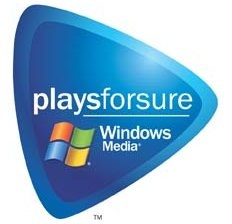 20th Century Fox has become the second studio to offer an additional digital version of a film to consumers who buy it on DVD. The copy, which can be played on computers and some portable media players. The video will be included on a second DVD, and will require that the user enter a 16 digit code found inside the DVD case. It uses Microsoft's PlaysForSure DRM, meaning that besides PC's, players from a number of vendors including Archos, Toshiba, Samsung, and RCA (but not Microsoft) is possible.
20th Century Fox has become the second studio to offer an additional digital version of a film to consumers who buy it on DVD. The copy, which can be played on computers and some portable media players. The video will be included on a second DVD, and will require that the user enter a 16 digit code found inside the DVD case. It uses Microsoft's PlaysForSure DRM, meaning that besides PC's, players from a number of vendors including Archos, Toshiba, Samsung, and RCA (but not Microsoft) is possible.
Earlier this month Warner Brothers announced that the DVD release of Harry Potter and the Order of the Phoenix will allow users to download a copy of the movie for playback on a media player, following the sale of Superman Returns with a similar feature.
The studios aren't providing the additional copies of the movies for no extra charge just to be nice. They're looking for ways to give consumers an incentive not to Rip their DVDs. That, in turn, would theoretically strengthen studio arguments against DMCA or EUCD exceptions for otherwise legal fair use purposes and give consumers with little knowledge of digital video an alternative to making DRM free copies themselves.
Read more...
Written by Rich Fiscus @ 16 Oct 2007 8:40
 LCD TV manufacturers are building new plants in an effort to streamline delivery to both European and North American customers. Most recently, Sony Corporation has begun building TVs in Slovakia, while Sharp has opened its first North American LCD manufacturing operation in Mexico. Other manufacturers, including Toshiba, are building facilities in Europe for LCD TV production.
LCD TV manufacturers are building new plants in an effort to streamline delivery to both European and North American customers. Most recently, Sony Corporation has begun building TVs in Slovakia, while Sharp has opened its first North American LCD manufacturing operation in Mexico. Other manufacturers, including Toshiba, are building facilities in Europe for LCD TV production.
Europeans seem to be adopting flat panel televisions more readily than any country besides Japan, where 99% TVs shipped during the second quarter of this year. During the same period 97% of all units shipped in Europe were flat panels. The U. S. lagged behind at only 88%.
With profit margins falling on LCD displays, and increased competition from manufacturers like Vizio targetting budget minded consumers, established companies are having to position themselves for stiff competition. Additionally, the conversion from analog to digital television in much of the world should ensure customers for years to come.
Source: PC World
Written by Rich Fiscus @ 16 Oct 2007 3:47
 After comments suggesting that there might not be support for any operating system besides Windows for the BBC's iPlayer service, BBC Director of Future Media and Tehnology Ashley Highfield was overruled by the BBC Trust.
After comments suggesting that there might not be support for any operating system besides Windows for the BBC's iPlayer service, BBC Director of Future Media and Tehnology Ashley Highfield was overruled by the BBC Trust.
A spokesman for the regulatory body noted "We required platform neutrality across downloads, Streaming and cable," referring to the conditions under which the iPlayer program was initially approved. He added "We would expect BBC management to come back to us if they are planning any changes to iPlayer."
On Monday, Highfield said "We need to get the streaming service up and look at the ratio of consumption between the services and then we need to look long and hard at whether we build a download service for Mac and Linux," adding "It comes down to cost per person and reach at the end of the day."
The iPlayer, which is designed to eventually allow everyone who pays television license fees to download BBC programs and keep them for as long as a month, has been criticized since it's public beta began earlier this year because it only runs on computers running Windows. Open source advocates, and even Macintosh users, have complained that former Microsoft executives now working on the iPlayer have specifically catered to Windows users at the expense of everyone else.
Read more...
Written by Rich Fiscus @ 16 Oct 2007 2:02
 U.S. lawmakers may be in for a taste of their own copyright medicine stemming from the use of characters from iconic animated series The Simpsons by the Republican Party. The images appeared in a press release posted on an official House of Representatives website as part of a campaign in opposition to a bill funding a children's health insurance initiative.
U.S. lawmakers may be in for a taste of their own copyright medicine stemming from the use of characters from iconic animated series The Simpsons by the Republican Party. The images appeared in a press release posted on an official House of Representatives website as part of a campaign in opposition to a bill funding a children's health insurance initiative.
"Twentieth Century Fox was unaware of the illegal use of characters from The Simpsons in this press release. Let me assure you, Fox did not authorize this use. Characters from The Simpsons may not be used in this manner" said Fox Broadcasting licensing spokesman Andy Brandt.
It's unclear whether Fox actually intends to bring legal action over what appears to be a fairly obvious case of copyright infringement, but if history is any indication they're legal department is probably seriously considering it. In 2003 Fox News reportedly considered suing Simpsons creator Matt Groening over a parody of the news channel on sister service Fox Broadcasting. The suit was never filed due to Groening's long and profitable relationship with Fox.
Although parodies are generally covered by fair use provisions, since this press release parodies the Democratic supporters of the bill being discussed, rather than being a parody of the copyrighted characters.
Read more...
Written by Rich Fiscus @ 15 Oct 2007 11:02
 AT&T's quest to provide an alternative to cable television in Connecticut has hit a snag after that state's Department of Public Utillity Control (DPUC) rejected an application to provide IPTV services across the entire state.
AT&T's quest to provide an alternative to cable television in Connecticut has hit a snag after that state's Department of Public Utillity Control (DPUC) rejected an application to provide IPTV services across the entire state.
AT&T has come under fire from some municipalities in recent months because they claim their U-Verse IPTV service isn't covered by the same regulations that govern cable television services. After a ruling in a Federal court earlier this year, which indicated that they are in fact considered a cable television provider under federal law, AT&T decided to apply for a statewide monopoly. This would have allowed them to operate within any part of the state, regardless of how local officials felt about it. With this ruling, they'll be required to get a contract with each municipality before offering service.
"In making this ruling, the DPUC ignored both the spirit and the letter of a brand-new consumer-friendly law and is protecting the cable monopoly," Ramona Carlow, an AT&T official overseeing regulatory affairs, said in a statement.
"Consumers should be outraged that just as more than 150,000 local households in more than 40 Connecticut cities and towns gained the ability to choose a video provider other than their local cable monopoly, the DPUC and attorney general have acted to protect cable monopolies by eliminating competition," Carlow said, referring to the 40 cities where U-verse is already available.
Read more...
Written by Rich Fiscus @ 15 Oct 2007 10:26
 YouTube has finally rolled out its long awaited video fingerprinting technology, which the company believes will allow them to automatically find and remove illegally posted copyrighted content. The tools' launch comes as the viral video leader is embroiled in an assortment of lawsuits from individuals and organizations accusing the company of not being proactive enough in finding and removing infringing material.
YouTube has finally rolled out its long awaited video fingerprinting technology, which the company believes will allow them to automatically find and remove illegally posted copyrighted content. The tools' launch comes as the viral video leader is embroiled in an assortment of lawsuits from individuals and organizations accusing the company of not being proactive enough in finding and removing infringing material.
Despite the lawsuits, however, YouTube's official position has always been that by removing offending content when informed by content owners they're already living up to their legal responsibility. Until this defense is tested in court, there's some question whether it will hold up to a legal challenge. The applicable portion of the DMCA was intended to protect hosting providers to ensure they're not liable for their customers' infringement.
Mike Fricklas, Viacom's general counsel, said "We are delighted that Google appears to be stepping up to its responsibility and end the practice of infringement." However, he didn't comment on what, if any, effect the move would have on the infringement suit Viacom has been pursuing against YouTube for several months.
Read more...
Written by Rich Fiscus @ 15 Oct 2007 5:43
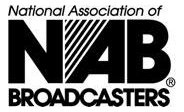 The National Association of Broadcasters (NAB) has finally unveiled plans for a campaign to educate U.S. consumers about the transition to digital television from analog in less than a year and a half.
The National Association of Broadcasters (NAB) has finally unveiled plans for a campaign to educate U.S. consumers about the transition to digital television from analog in less than a year and a half.
Much has been made of the issue lately, as the Federal Government's General Accounting Office has taken the FCC to task for practically ignoring the problem. Meanwhile over the air broadcasters, who stand to lose a lot if viewers aren't able to receive their signals, have been almost completely silent, leading many to wonder who's going to take responsibility for making sure the public is prepared.
The NAB's ad campaign, which are expected to air on national networks, as well as individual stations across the country, are intended to inform consumers about the impending switch, and what to do to ensure they have a television capable of receiving and displaying digital signals. While all new televisions manufactured for sale in the U.S. over the last couple of years are all digital ready, most viewers who receive over the air signals have older analog sets that will require either replacement or the addition of a digital to analog converter box.
Although the government is planning to provide vouchers that should cover the cost of the converters, unless they're aware of the problem, consumers will have a hard time taking advantage of this program.
Read more...
Written by Rich Fiscus @ 15 Oct 2007 10:18
 With DRM apparently on its way out for music downloads, developers are working hard to come up with new ways to make use of their customers' new found freedom.
With DRM apparently on its way out for music downloads, developers are working hard to come up with new ways to make use of their customers' new found freedom.
According to MP3tunes CEO and MP3.com founder Michael Robertson, the switch to a DRM free model will free up developers to try new and innovative ideas, instead of spending all their time finding ways to implement DRM solutions and develop frameworks that work with them.
"Over the last decade, the many different DRM schemes (Windows Media, ATRAC, iTunes, Madison Project, Liquid Audio, SDMI, Real, a2b, etc.) promoted by so many large corporations have created confusion in the marketplace and soaked up hundreds of millions of dollars in development," he said. "The resurgent focus on MP3 will mean future dollars can be focused on building compelling new ways for the consumer to first get and then enjoy their music."
Not all online retailers are likely to be as happy about going DRM free however. Subscription services like Napster rely on DRM considerations to sell the ability to access music from various locations on various devices. With no DRM to hold them back, other services are likely to target subscription customers with services like MP3Tunes' music lockers, which allow DRM free music to be stored online for access from any internet connection.
Read more...
Written by Rich Fiscus @ 14 Oct 2007 8:27
 This month marked the switch from beta to release status for Joost, marketed as the world's first broadcast quality internet television network. According to the company, over 2 million people have already downloaded the required player application during the beta period, and over 100,000 shows have been downloaded per day since the October 1 launch.
This month marked the switch from beta to release status for Joost, marketed as the world's first broadcast quality internet television network. According to the company, over 2 million people have already downloaded the required player application during the beta period, and over 100,000 shows have been downloaded per day since the October 1 launch.
"The Internet will start off showing traditional entertainment but eventually users and content creators will use the capabilities of the Internet to create some amazing entertainment," said Mike Volpi, who heads up Joost. The service is being showcased at this week's MIPCOM convention, an annual global convention for A/V producers and distributors.
Joost's launch comes ahead of competitors that are eventually expected to include television networks. That could make it difficult for Joost to get some of the high profile television shows Volpi is counting on to remain 100% advertiser supported.
Source: Yahoo News
Written by Rich Fiscus @ 14 Oct 2007 9:38
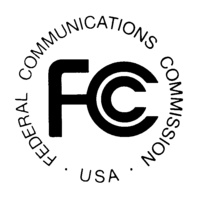 Tech companies and television networks are feuding over the use of so called "white spaces" in the television spectrum for wireless devices. White spaces are frequency ranges that are in the same range designated for television but not currently used by broadcasters. Companies ranging from Google to Microsoft to Phillips Electronics would like to use for future wireless devices.
Tech companies and television networks are feuding over the use of so called "white spaces" in the television spectrum for wireless devices. White spaces are frequency ranges that are in the same range designated for television but not currently used by broadcasters. Companies ranging from Google to Microsoft to Phillips Electronics would like to use for future wireless devices.
Broadcast white space is coveted for the same reason the soon to be available spectrum currently used for analog television signals is. The short wavelengths are very resistant to signal loss when traveling through obstacles like buildings and trees, giving them a much greater effective range, especially close to the ground where most consumer electronics are used. Current wireless technoloy must generally be transmitted and received further away from the ground and with nothing obstructing line of sight to achieve comparable signal strength.
On Thursday an Information Technology Industry Council (ITI) accused executives from CBS, NBC, News Corp (which owns Fox), and Disney (owner of ABC) of intentionally misrepresenting the proposed use of frequencies in the broadcast televison range. Brian Peters, ITI's Director of Government Relations said the executives are making "unfounded claims of interference designed to confuse consumers and policymakers."
Read more...
Written by Rich Fiscus @ 14 Oct 2007 6:41
 Last week, a copyright lobbying group called the Copyright Alliance held an expo in Washington DC that looked a little more like a three ring circus, to show elected officials how serious they are about copyright. The event was filled with the paraphernalia of entertainment industry propoganda, from RIAA t-shirts reading "Feed a musicion, download legally" to Entertainment Software Association (ESA) posters proclaiming "Game Over Pirates Game Over."
Last week, a copyright lobbying group called the Copyright Alliance held an expo in Washington DC that looked a little more like a three ring circus, to show elected officials how serious they are about copyright. The event was filled with the paraphernalia of entertainment industry propoganda, from RIAA t-shirts reading "Feed a musicion, download legally" to Entertainment Software Association (ESA) posters proclaiming "Game Over Pirates Game Over."
And what Washington event would be complete without a few government officials. With organizations like the RIAA, MPAA, ESA, and Association of American Publishers joined by company representatives from Microsoft, Viacom, NBC Universal, and Walt Disney, it was ineveitable that visitors from Congress and the White House would be interested. Unfortunately for expo organizers, the Senate was in recess all week, and the House of Representatives wasn't in Session that day because of a funeral.
Read more...
Written by Rich Fiscus @ 13 Oct 2007 7:29
 Music licensing firm Snocap cut it's staff by 60% according to a company spokeswoman. Snocap is best known for being co-owned by Napster founder Shawn Fanning.
Music licensing firm Snocap cut it's staff by 60% according to a company spokeswoman. Snocap is best known for being co-owned by Napster founder Shawn Fanning.
Although Fanning's Napster connection netted the company a lot of free publicity initially, other companies, particularly Apple's iTunes, have performed much more impressively, and file sharing technology has progressed far beyond Napster's failed model. Now Snocap is laying off employees and up for sale. "Snocap has received interest from several companies and is pursuing that," said Susan Celia Swan, a company representative.
Last year Snocap inked what appeared to be a lucrative licensing deal with MySpace. Under the agreement, Snocap allows any band to license music for MySpace sites using a service called MyStores. Snocap deducts a small fee from royalty payments and splits it with MySpace. Despite the mind bogglingly large MySpace subscriber base, they company has attracted fewer than 200,000 potential customers for music from over 80,000 artists.
Although the company's MyTunes site had nearly 20 million unique visitors in September, theu haven't made any public statement regarding sales figures.
Read more...
Written by Rich Fiscus @ 12 Oct 2007 9:41
 According to a report in the online edition of BusinessWeek, unnamed music industry insiders claim Universal Music Group CEO Doug Morris is working on a new music licensing model that would allow them to offer a music subscription model subsidized by media player manufacturers.
According to a report in the online edition of BusinessWeek, unnamed music industry insiders claim Universal Music Group CEO Doug Morris is working on a new music licensing model that would allow them to offer a music subscription model subsidized by media player manufacturers.
UMG's intention to knock down Apple from the top of the music download hill has played out very publicly this year. Contentious negotiations with Apple that led to a month-to-month contract replacing the extension of a longer agreement sought by Apple. Morris is unhappy with Apple's control over online pricing, and the mobile media player market.
His plan for the service, dubbed Total Music, would be to charge portable media player manufacturers a $5 monthly subscription fee for each unit sold that supports the service, giving consumers "free" access to music from different labels. So far they've enlisted Sony BMG as a potential partner and are in talks with Warner Music Group.
Although player manufacturers who have yet to successfully compete with Apple's iPod for market share would certainly be interested in a model that puts them on equal footing, a bigger question at this point is whether enough sales can be sustained to pay for the ongoing license fees.
Read more...
Written by Rich Fiscus @ 12 Oct 2007 9:17
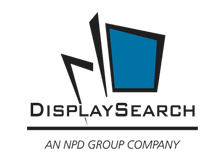 At the DisplaySearch HDTV conference in Los Angeles Randy Waynick of Sony's home products told an audience that manufacturers have failed in their responsibility to educate consumers about new technology. He said "In the past year, if we were to grade ourselves, we were barely passing as an industry."
At the DisplaySearch HDTV conference in Los Angeles Randy Waynick of Sony's home products told an audience that manufacturers have failed in their responsibility to educate consumers about new technology. He said "In the past year, if we were to grade ourselves, we were barely passing as an industry."
This certainly isn't a revelation to consumers who have attempted to navigate the maze of confusing and often conflicting information available from discount, or even specialty electronics retailers.
Waynick's call for education isn't necessarily as consumer oriented as it may seem. He also pointed to the emergence of upstart display manufacturer Vizio as a sign of consumer ignorance, saying "We play differently, and we take a lot of hits for it sometimes because we want to provide a better value."
The problem with this kind of thinking is that it assumes consumers are buying with advanced features in mind instead of a low price on a reasonably high quality, reasonably large HD display. Although low profit margins for discount displays have put retailers are clearly in Sony's corner on this one, consumers don't appear to be nearly as impressed. In fact, it begs the question whether it's consumers or manufacturers that are really in the dark.
Read more...
Written by Rich Fiscus @ 11 Oct 2007 7:53
 After two years of anticipation, U.S. cable television giant Comcast has finally begun installing TiVo based DVRs for test customers. The company intends to continue offering their basic DVR service, which uses non-TiVo hardware, and add the TiVo boxes as a premium DVR service.
After two years of anticipation, U.S. cable television giant Comcast has finally begun installing TiVo based DVRs for test customers. The company intends to continue offering their basic DVR service, which uses non-TiVo hardware, and add the TiVo boxes as a premium DVR service.
Since the 2005 announcement, this deal has been seen as key to TiVo's future. TiVo has previously worked with DirecTV to provide special satellite based DVRs called DirecTiVo, but DirecTV has since decided to go in another direction and provide less expensive DVR boxes.
With DVRs being at the forefront of the battle for customers betwen different television providers, and increases seeming inevitable in the very near future, TiVo is in a position to either form strategic partnerships to grow their business, or falter and become an example of the innovator that couldn't find a workable business model.
Sources:
Associated Press
Reuters
Written by Rich Fiscus @ 11 Oct 2007 7:32
 On Friday Samsung is expected to have an important Firmware update available for their Blu-ray players. Both the BD-P1000 and BD-P1200 had problems playing Fantastic Four: Rise of the Silver Surfer because of it's new BD+ DRM.
On Friday Samsung is expected to have an important Firmware update available for their Blu-ray players. Both the BD-P1000 and BD-P1200 had problems playing Fantastic Four: Rise of the Silver Surfer because of it's new BD+ DRM.
According to a statement from the company, “This firmware update will resolve freezing issues experienced when viewing Fox titles and their BD+ features.”
So far, the BD+ compatibility problems with a few players has been the first serious hiccup in player development for Blu-ray or HD DVD. Of course there might well have been earlier issues if enough consumers had bought into next-gen formats that additional standalone models had been designed.
The update can be downloaded directly to the BD-P1200 player through its built in Ethernet port, or it can be loaded the way BD-P1000 owners will have to and burn it to optical media to be loaded from the unit's drive.
Source: Video Business
Written by Rich Fiscus @ 10 Oct 2007 7:58
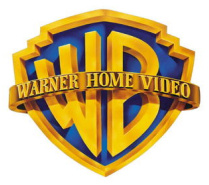 The Warner Home Video DVD release of Harry Potter and the Order of the Phoenix will include a feature that allows viewers to download the movie in a format suitable for PC or portable device playback. This is the second such offer from the studio. Superman Returns discs were sold at Wal-Mart with a similar feature for downloading that movie.
The Warner Home Video DVD release of Harry Potter and the Order of the Phoenix will include a feature that allows viewers to download the movie in a format suitable for PC or portable device playback. This is the second such offer from the studio. Superman Returns discs were sold at Wal-Mart with a similar feature for downloading that movie.
The move is interesting because it seems to represent at least the beginnings of a dialog with consumers regarding fair use. Besides including a second copy of the movie suitable for playback on a different device than the original DVD, it also theoretically removes technical barriers for making decent quality copies for format shifting for computers, mobile players, and other devices.
Of course the flip side of that arrangement is the continuation of DVD's DRM farce known as CSS. Instead of addressing what rights consumers should have in their own homes, this approach seems to simply switch from one false dilemna of copy protection vs. fair use for a less draconian situation where the studio graciously gives consumers what they could already get on their own in exchange for an unspoken agreement not to complain about DRM.
Read more...
Written by Rich Fiscus @ 10 Oct 2007 7:46
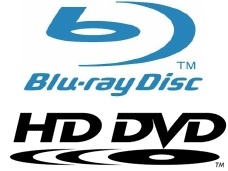 According to sales figures cited by Jodi Sally, Toshiba VP of Marketing of Digital A/V Products, HD DVD standalone players are once again out-selling Blu-ray units. She said that so far HD DVD players have outsold Blu-ray standalones by 50%.
According to sales figures cited by Jodi Sally, Toshiba VP of Marketing of Digital A/V Products, HD DVD standalone players are once again out-selling Blu-ray units. She said that so far HD DVD players have outsold Blu-ray standalones by 50%.
The numbers, which only count standalone players have come under fire in the past for not counting PS3 game consoles as Blu-ray players. While there's some validity to the argument that the primary motivation for buying a PS3 is more likely about gaming, that doesn't mean owning one wouldn't influence a consumer to buy Blu-ray movies. However, it's estimated that only 20% of PS3 owners have played even a single Blu-ray disc on the console.
Toshiba claims that the number of people buying HD DVD PC drives are largely interested in hi-def content, and the lack of anything else that makes use of the media would tend to support that. They say this more than equals the number of PS3 Blu-ray customers. Sally said Toshiba expects 5 million HD DVD PC and laptop drives will be sold in 2008.
Read more...
Written by Rich Fiscus @ 09 Oct 2007 6:34
 In an effort to distinguish their DVRs from the competition, TiVo Inc. had already entered into a deal with Amazon.com to offer their Unbox video download service through TiVo Series2 or Series3 DVRs. Now they've announced a deal with the RealNetworks and MTV Networks owned Rhapsody America to allow music from the Rhapsody service to be streamed through them.
In an effort to distinguish their DVRs from the competition, TiVo Inc. had already entered into a deal with Amazon.com to offer their Unbox video download service through TiVo Series2 or Series3 DVRs. Now they've announced a deal with the RealNetworks and MTV Networks owned Rhapsody America to allow music from the Rhapsody service to be streamed through them.
Rhapsody is a subscription service that allows listeners to stream an unlimited number of songs from the internet for a monthly fee. Rhapsody also sells standard MP3 downloads for sale, but this won't be available on TiVos.
Current TiVo subscribers will be be able to try the service free for 30 days. After that it will cost them $12.99 per month in addition to TiVo's standard monthly fee.
"This puts us on the map as distinguishing ourselves from other generic DVRs," TiVo's CEO Tom Rogers said. "We not only facilitate getting Rhapsody on the TV set, but most importantly, the quick easy way to find it, which is how TiVo made its name."
"The big thrust for us is to try to expand the pie, bring digital music to more consumers," Michael Bloom, Rhapsody general manager told Reuters. "CD sales have been in rapid decline. This is one of the ways that we are going to help in that regard."
Read more...
Written by Rich Fiscus @ 09 Oct 2007 5:54
 BitTorent Inc. announced a deal to license their new BitTorrent DNA Streaming video service to Brightcove, a company that distributes video over the internet from sources like MTV, Fox Entertainment, and CBS. Earlier this year, BitTorent opened their own online store powered by the technology.
BitTorent Inc. announced a deal to license their new BitTorrent DNA Streaming video service to Brightcove, a company that distributes video over the internet from sources like MTV, Fox Entertainment, and CBS. Earlier this year, BitTorent opened their own online store powered by the technology.
Although the BitTorent file sharing protocol has become synonymous in many people's minds with piracy, it's also used to legally distribute things like Linux disc images and free MP3s. Brian Cohen, creator of the BitTorrent technology, says he's been trying to find a way to use it for commercial purposes for years. He believes BitTorrent DNA is such a product.
As streaming video and audio become more common, content providers are constantly looking for new ways to deliver it at a reasonable price, and the cost of bandwidth is no small part of the picture. By using P2P technology, companies can provide licensing for content, while their customers help provide bandwidth by sharing the downloaded content among themselves.
Read more...
Written by Rich Fiscus @ 08 Oct 2007 7:59
 A Japanese telecommunications company is planning to implement a nationwide data network that will offer connection speeds between 30Mbps to 1Gbps.
A Japanese telecommunications company is planning to implement a nationwide data network that will offer connection speeds between 30Mbps to 1Gbps.
What's raising some eyebrows about the ambitious plan, is NTT Group's stated intention to charge extra for priority access to network bandwidth. That would mean customers who don't pay extra might experience quality issues with Streaming media like television programs if network resources are stretched thin.
The issue of paying for bandwidth is at the heart of the Net Neutrality debate. While broadband service providers often point fingers at consumers and online media providers, consumers tend to disagree with that assessment. Since internet service providers often market their services as being suitable for things like streaming, a lot of consumers feel ISP attempts to charge extra for bandwidth required for streaming are unreasonable.
Ironically, the company unveiled a video conferencing application at the same time.
Source: CNet News
Written by Rich Fiscus @ 08 Oct 2007 7:57
 Windows Home Server is now available from U.S. retailers like Newegg.com and Buy.com. Prices are coming in at just under $200.
Windows Home Server is now available from U.S. retailers like Newegg.com and Buy.com. Prices are coming in at just under $200.
Intended to compete with networked home storage solutions that are becoming particularly popular as media servers, Windows Home Server is designed to be run on a headless server, meaning it's controlled from a network connection instead of having a keyboard, monitor, and mouse directly connected.
Although the price may seem like a bargain compared to Vista, since it's only available in an OEM version that limits the support Microsoft will provide.
If you'd prefer to buy a home server with the software already loaded, Hewlett Packard will be releasing one with Windows Home Server for $750 according to information accidentally leaked earlier in the year.
Source: Ars Technica
Written by Rich Fiscus @ 07 Oct 2007 1:47
 A City Councilman in Union City, Indiana wants to force the owner of a McDonald's franchise to either remove the Redbox DVD rental kiosk that sits outside, or stock it with nothing but G rated movies.
A City Councilman in Union City, Indiana wants to force the owner of a McDonald's franchise to either remove the Redbox DVD rental kiosk that sits outside, or stock it with nothing but G rated movies.
After reportedly asking franchise owner Rick Reichenbach to either remove the machine or change the selection of available movies, Bryan Conklin intends to file for an injunction from the state forcing the removal of the movies. He said “Our intention is that, if this is going to be for the general public, then we are asking them to have G-rated films only.”
Redbox VP of marketing Gary Lancina said, “Redbox is intended for use by customers age 18 years and older. We feel the appropriate measures are in place to allow parents and families to make educated choices regarding age-appropriate entertainment options when using Redbox kiosks.” He added “Any time a customer selects an R-rated Title, a screen appears informing the customer that they will be renting a DVD with an R-rating. Customers then have a chance to select a different movie or proceed with their rental. To date, we have not experienced problems regarding age restrictions."
Read more...
Written by Rich Fiscus @ 07 Oct 2007 1:25
 Redbox, whose video rental kiosks have become common sights at McDonald's restaraunts around the United States, is attracting interest as a replacement for existing in-store rental operations from at least one company. Giant Eagle is about half way done installing the kiosks in 90% of their stores.
Redbox, whose video rental kiosks have become common sights at McDonald's restaraunts around the United States, is attracting interest as a replacement for existing in-store rental operations from at least one company. Giant Eagle is about half way done installing the kiosks in 90% of their stores.
“In general, customer interests have moved away from renting videos in bricks-and-mortar rental stores and toward both video purchasing and newer, more convenience-oriented rental services,” namely via online and kiosks, he said. “As Giant Eagle changes its video business with these trends, we have made the decision to transfer our video rental offerings away from our Iggle Video departments and focus on both our video sell-through offering as well as our Redbox rental kiosks.”
The kiosks typically have the week's top 100 new releases, which is certainly fewer than the number typically available from each store's in-store rental operation, but without the overhead associated with stocking and operating such a service.
Movies cost $1 per night to rent, and can be returned to any Redbox kiosk, including those at McDonald's.
Source: Video Business
Written by Rich Fiscus @ 05 Oct 2007 6:52
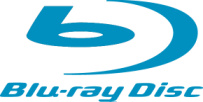 People taking home copies of the new Blu-ray release from Fox, The Fantastic Four: Rise of the Silver Surfer, may be disappointed, depending on what model of player they have. That's because of reports that are coming in, particularly on AVSForum, that neither Samsung's BD-P1200 and LG's BH100 (dual format) player can play the disc.
People taking home copies of the new Blu-ray release from Fox, The Fantastic Four: Rise of the Silver Surfer, may be disappointed, depending on what model of player they have. That's because of reports that are coming in, particularly on AVSForum, that neither Samsung's BD-P1200 and LG's BH100 (dual format) player can play the disc.
It's not surprising that this would happen as the BD+ protection used on the disc is very new. Players that have problems give the viewer a message suggesting a Firmware update. This isn't exactly a surprising development with adoption of the additional DRM measures. However, it may highlight an inherent weakness in the strategy of protection that can be upgraded, therefore requiring mass player updates.
Right now few households have either a Blu-ray or HD DVD player, even if they do have an HDTV. That isolates the problem to a small number of mostly tech savvy A/V enthusiasts. These are the kind of people who typically don't have a problem with a firmware update. The same can't be said for much of the general public. What will their reactions be if they buy into Blu-ray and have similar problems in the future?
Read more...
Written by Rich Fiscus @ 05 Oct 2007 5:55
 Hoping to resolve consumer education issues, the Entertainment Merchants Association (EMA) created what they're calliing the Digital Council.
Hoping to resolve consumer education issues, the Entertainment Merchants Association (EMA) created what they're calliing the Digital Council.
With all the new technology that's been introduced in the last few years has come an equal amount of consumer confusion. Different digital television resolutions, some hi-def and some not, combined with the issue of DVD vs HD DVD vs Blu-ray vs other competing technologies have all left the majority of consumers scratching their heads, and as a result has helped hold back next-gen disc formats.
The Digital Council will focus on Internet based video distribution and on demand home video manufacturing, such as the DVD burning kiosks being promoted by such companies as Sonic Solutions and Polar Frog. council co-chairman Mark Vrieling also indicated that a major focus of their internet related efforts will be designing contracts that protect content owners, while still allowing distributors to make a profit.
“First off, we want to standardize definitions so that everyone understands what we are talking about,” said co-chairman Mitch Mallon, VP of digital sales at Egami Media. Clearly this is an issue, as most people, even those whose primary responsibility it is to sell consumer electronics, don't seem to even know many of the terms required to have an intelligent discussion about new technology, let alone understand the technology required for internet based video distribution.
Read more...
Written by Rich Fiscus @ 04 Oct 2007 6:06
 Blockbuster is expected to announce a loss of subscribers during the third quarter of this year. The drop comes as their chief rival among brick and mortar video rental chains, Movie Gallery, has been faltering and may file for bankruptcy soon.
Blockbuster is expected to announce a loss of subscribers during the third quarter of this year. The drop comes as their chief rival among brick and mortar video rental chains, Movie Gallery, has been faltering and may file for bankruptcy soon.
Over the last few years, online DVD rental pioneer Netflix has been steadily growing at the expense of traditional rental outlets. Last year Blockbuster unveiled a new online rental program of their own, dubbed Total Access, intended to be the first to actually give Netflix some real competition. One of the selling points for Total Access is an option to return movies to brick and mortar stores, allowing faster receipt and shipment of additional movies.
This strategy seemed to be paying off as the program gained momentum last year, and earlier this year even resulted in a net loss of customers for Netflix, the first time that's happened since that company's inception in the late 1990s. However, despite subscriber gains, corporate losses led Blockbuster's recently hired CEO to cut back on in-store returns from the program, only permitting a Limited number, depending on the plan you select. At the same time, Netflix has added Streaming movies and lowered prices.
Read more...
Written by Rich Fiscus @ 04 Oct 2007 5:36
 In a report that shouldn't surprise long time Afterdawn visitors, the U.S. General Accounting Office accuses FCC members of a bias toward helping Washington lobbyists. The report states that some at the agency leak details regarding what votes are coming up to industry lobbyists, who then have a chance to stage some sort of campaign to get whatever result they're looking for.
In a report that shouldn't surprise long time Afterdawn visitors, the U.S. General Accounting Office accuses FCC members of a bias toward helping Washington lobbyists. The report states that some at the agency leak details regarding what votes are coming up to industry lobbyists, who then have a chance to stage some sort of campaign to get whatever result they're looking for.
The report says "this imbalance of information is not the intended result of the Communications Act and it runs contrary to the principles of transparency and equal opportunity for participation established by law and to FCC's own rules that govern rulemaking."
David Fiske, director of media relations at the agency, said in an interview that FCC Chairman Kevin Martin "has always been very open and transparent" about what issues are coming to a vote and that the commission is "exploring ways in which we can make our processes even more open and transparent."
Despite FCC claims of neutrality, events over the last few years tell a different story. It was, after all, the the FCC that first attempted to mandate compatibility with the so-called broadcast flag. The broadcast flag, which the television industry has been fighting to get for years, would allow digital broadcasts to tell a potential recording device that it's not authorized to record them. Before being shot down by a Federal Court as outside the agency's authority, FCC regulations would have required all consumer electronics devices to not only support, but be dictated to by the flag.
Read more...
Written by Rich Fiscus @ 03 Oct 2007 6:18
 Microsoft announced new Zune models, and upgrades to the second generation functionality for first generation players, but analysts are saying the company needs to change strategies if they want the Zune to compete with Apple's industry leading iPod. The new models include two flash based players - 4GB and 8GB, and another with an upgraded 80GB hard drive.
Microsoft announced new Zune models, and upgrades to the second generation functionality for first generation players, but analysts are saying the company needs to change strategies if they want the Zune to compete with Apple's industry leading iPod. The new models include two flash based players - 4GB and 8GB, and another with an upgraded 80GB hard drive.
"This device with the all-too-familiar dial wheel compares reasonably favourably with last generation iPod players," said Mark Mulligan, analyst with Jupiter Research. "Microsoft needs to come at Apple from an unexpected angle but at the moment it is Apple with its new iPod touch and nanos that is shaking up the market," he said.
At the launch event for the new Zunes, Bill Gates compared Microsoft's current digital media strategy to the company's past work in gaining acceptance for Office, saying "Twenty years ago we bet the company on an integrated productivity suite of word processing, spreadsheets and presentations, and we changed the way people work."
The problem is that Apple has already changed the way many people purchase and listen to music. If Microsoft, or any other company, truly wants to compete with iPods or iTunes they'll need to come up with something new to get consumer attention. Until then, the Zune will come off to most as simply an iPod copy.
Read more...
Written by Rich Fiscus @ 03 Oct 2007 5:54
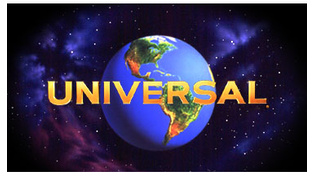 Universal hopes their release of Evan Almighty on HD DVD will impress consumers with its interactive web features. So far, it's the most ambitious use of HD DVD's interactive web features. While the first, 300, offered the viewer ringtones and computer wallpaper, Evan Almighty takes you to a much larger selection of merchandise, much of it intended to tie into the movie's environmental theme.
Universal hopes their release of Evan Almighty on HD DVD will impress consumers with its interactive web features. So far, it's the most ambitious use of HD DVD's interactive web features. While the first, 300, offered the viewer ringtones and computer wallpaper, Evan Almighty takes you to a much larger selection of merchandise, much of it intended to tie into the movie's environmental theme.
“With the release of Evan Almighty on HD DVD, we’re introducing U-Shop, a new level of Web-enabled experiences only HD DVD can provide,” said Craig Kornblau, president of Universal Studios Home Entertainment and Universal Pictures Digital Platforms. “The guaranteed features on every HD DVD players allow us to explore the world beyond what’s possible on a physical disc and redefine the home movie experience.”
Once at U-shop, viewers have the chance to buy products like a composter or solar powered radio in addition to movie memorabilia like t-shirts. While web functionality was originally envisioned to be something a viewer could take advantage of while watching the movie, such as buying an item featured in a scene, studios have been wary of implementing that for fear actors would feel they were being used to advertise - something that's not included in their contracts.
Read more...
Written by Rich Fiscus @ 02 Oct 2007 9:46
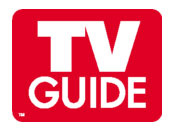 TV Guide is taking the leap into the world of online television offerings with a new service called the Online Video Guide, debuting on their website today. The idea is to help site to the publication's website go straight to the best sources for television shows and related content. For example, a search for a show that's available on a television network website should show that offering first. Additional features will include an option to narrow the search to free video, eliminating online stores like Amazon Unbox or Apple's iTunes.
TV Guide is taking the leap into the world of online television offerings with a new service called the Online Video Guide, debuting on their website today. The idea is to help site to the publication's website go straight to the best sources for television shows and related content. For example, a search for a show that's available on a television network website should show that offering first. Additional features will include an option to narrow the search to free video, eliminating online stores like Amazon Unbox or Apple's iTunes.
"We're filling a niche that Google and YouTube are not because they're not strictly TV-focused," said Paul Greenberg, General Manager of TV Guide Online. He also says that 70% of YouTube users are more interested in professionaly produced video, rather than the user produced content that site is famous for.
While the number of visitors to TV Guide Online has increased an estimated 70% in the last year, subscriptions to their traditional weekly publications of regular TV programming has fallen dramatically over several years.
Although they currently don't receive any monetary compensation outside their own advertising for directing visitors to videos, TV Guide hopes to negotiate deals with content providers for some sort of revenue sharing.
Read more...
Written by Rich Fiscus @ 02 Oct 2007 8:40
 According to Viacom CEO Philippe Dauman, the company has no intention of delivering DRM free digital media, and in fact expects both DRM and watermarking technology to be widely accepted among both content providers and consumers. During an address at a U.S. Chamber of Commerce conference on antipiracy measures he said that these measures "will usher in an unprecedented period of creative output across the globe." Hoping to prove his point, he mentioned that Viacom is already the leader in delivering digital content to mobile devices.
According to Viacom CEO Philippe Dauman, the company has no intention of delivering DRM free digital media, and in fact expects both DRM and watermarking technology to be widely accepted among both content providers and consumers. During an address at a U.S. Chamber of Commerce conference on antipiracy measures he said that these measures "will usher in an unprecedented period of creative output across the globe." Hoping to prove his point, he mentioned that Viacom is already the leader in delivering digital content to mobile devices.
His comments seem to indicate that the parent company of Paramount hasn't learned anything from the music industry experience with media distribution, which is clearly shifting to a DRM free model. While DRM on video destined for mobile devices may make sense, it's not as though there's a huge demand for watching low resolution, low quality video on an HDTV anyway.
Although he also claimed that Viacom supports fair use, his diatribe about the importance of DRM and watermarking didn't include an explanation of how those technologies can be used in a way that allows consumers to take advantage of that right.
If content owners really want to be friends of fair use, it's time to do more than simply give lip service to it. Regardless of the entertainment industry's liberal application of Orwellian doublethink, peace is not war, love is not hate, and DRM (as it's currently implemented) is not conducive to fair use.
Read more...

 Samsung Electronics introduced what they're calling the fastest DVD burner on the market. The Super-WriteMaster SH-S203N is a SATA burner that writes dual layer DVDs at up to 16x and also has Lightscribe support.
Samsung Electronics introduced what they're calling the fastest DVD burner on the market. The Super-WriteMaster SH-S203N is a SATA burner that writes dual layer DVDs at up to 16x and also has Lightscribe support.

 A Pennsylvania woman, with the help of the Electronic Frontier Foundation (EFF), is taking Prince to court over his alleged involvement in a DMCA takedown request earlier this year. Although Stephanie Lenz was successful in getting the video restored to YouTube, EFF staff attorney Corinne McSherry said the purpose of the suit is "To keep them from abusing [the DMCA]."
A Pennsylvania woman, with the help of the Electronic Frontier Foundation (EFF), is taking Prince to court over his alleged involvement in a DMCA takedown request earlier this year. Although Stephanie Lenz was successful in getting the video restored to YouTube, EFF staff attorney Corinne McSherry said the purpose of the suit is "To keep them from abusing [the DMCA]."
 In the words of one Comcast employee, the company's policy of "shaping traffic" which results in disruption of some
In the words of one Comcast employee, the company's policy of "shaping traffic" which results in disruption of some  Today NBC Universal (NBCU) and News Corp. owned video venture Hulu enters private beta testing. Those companies and last minute additions which include MGM and Sony Pictures Television will be providing content for the site.
Today NBC Universal (NBCU) and News Corp. owned video venture Hulu enters private beta testing. Those companies and last minute additions which include MGM and Sony Pictures Television will be providing content for the site.
 Just as in the pre-ecommerce world musicians would often sign with independent labels to finance recording, a new trend is developing that has some bands foregoing traditional financing altogether and raising money on the internet.
Just as in the pre-ecommerce world musicians would often sign with independent labels to finance recording, a new trend is developing that has some bands foregoing traditional financing altogether and raising money on the internet.
 With all the hype surrounding new methods of digital video distribution, a new market is emerging that caters to people interested in movies that traditionally don't get any exposure in the U.S. marketplace. A download service called Jaman caters to people looking for less mainstream international movies.
With all the hype surrounding new methods of digital video distribution, a new market is emerging that caters to people interested in movies that traditionally don't get any exposure in the U.S. marketplace. A download service called Jaman caters to people looking for less mainstream international movies.
 The music industry is trying hard to bring online content into brick and mortar stores. While traditionally, music downloads have been purchased through online transactions, new initiatives are intended to allow consumers to walk into a store and pay for downloads.
The music industry is trying hard to bring online content into brick and mortar stores. While traditionally, music downloads have been purchased through online transactions, new initiatives are intended to allow consumers to walk into a store and pay for downloads.
 Public Knowledge, a consumer rights advocacy group specializing in intellectual property issues, released
Public Knowledge, a consumer rights advocacy group specializing in intellectual property issues, released  Walgreen, the largest pharmacy chain in the U.S., plans to install
Walgreen, the largest pharmacy chain in the U.S., plans to install  Movielink, the video download service recently acquired by Blockbuster lost more than $10 million dollars in just the first half of the year according to Blockbuster financial reports which will be released at the beginning of next month.
Movielink, the video download service recently acquired by Blockbuster lost more than $10 million dollars in just the first half of the year according to Blockbuster financial reports which will be released at the beginning of next month.
 Refined Reccomendation Corporation has filed a lawsuit against Netflix claiming that the internet
Refined Reccomendation Corporation has filed a lawsuit against Netflix claiming that the internet  The Motion Picture Association of America, along with an assortment of Japanese business organizations announced support for changes to Japan's copyright law making unauthorized downloading of copyrighted content illegal.
The Motion Picture Association of America, along with an assortment of Japanese business organizations announced support for changes to Japan's copyright law making unauthorized downloading of copyrighted content illegal.
 Anonymous representatives of two movie studios backing
Anonymous representatives of two movie studios backing  More than a week before its theatrical release, the movie American Gangster has shown up on
More than a week before its theatrical release, the movie American Gangster has shown up on  According to testimony before the Senate Commerce Committee yesterday, if the royalty rates approved by the Copyright Royalty Board (CRB) in March aren't overturned, internet radio stations are finished. The testimony from Pandora founder Tim Westergren was part of a hearing called to assess the state of negotiations between webcasters and SoundExchange, the recording industry royalty colllection agency which originally proposed the new rates. Although webcasters have claimed negotiations between the two sides have stalled, SoundExchange representatives have indicated that there are merely delays while they assess the financial situations webcasters find themselves in.
According to testimony before the Senate Commerce Committee yesterday, if the royalty rates approved by the Copyright Royalty Board (CRB) in March aren't overturned, internet radio stations are finished. The testimony from Pandora founder Tim Westergren was part of a hearing called to assess the state of negotiations between webcasters and SoundExchange, the recording industry royalty colllection agency which originally proposed the new rates. Although webcasters have claimed negotiations between the two sides have stalled, SoundExchange representatives have indicated that there are merely delays while they assess the financial situations webcasters find themselves in.
 Analyst David Barden predicts that Verizon's FiOS network, which launched two years ago and now boasts growth of more than 10,000 customers in an average week, will have two million customers by year's end.
Analyst David Barden predicts that Verizon's FiOS network, which launched two years ago and now boasts growth of more than 10,000 customers in an average week, will have two million customers by year's end.
 Sony Online Entertainment will be working with Sony Computer Entertainment to deliver movies, television, and music to PS3 gamers.
Sony Online Entertainment will be working with Sony Computer Entertainment to deliver movies, television, and music to PS3 gamers.
 Despite being outsold nearly 2 to 1 by
Despite being outsold nearly 2 to 1 by  Lord Triesman, parliamentary Under Secretary for Innovation, Universities, and Skills in the U.K. said yesterday that if ISPs don't get copyright infringement by their customers under control, legislation will be passed to resolve the issue. He told the BBC "If we can't get voluntary arrangements we will legislate."
Lord Triesman, parliamentary Under Secretary for Innovation, Universities, and Skills in the U.K. said yesterday that if ISPs don't get copyright infringement by their customers under control, legislation will be passed to resolve the issue. He told the BBC "If we can't get voluntary arrangements we will legislate."
 Security experts are comparing the iPhone's security to that of Windows 95, which is to say it has none. "It really is an example of 'those who don't learn from history are condemned to repeat it'," says Dan Geer, vice president and chief scientist at security firm Verdasys.
Security experts are comparing the iPhone's security to that of Windows 95, which is to say it has none. "It really is an example of 'those who don't learn from history are condemned to repeat it'," says Dan Geer, vice president and chief scientist at security firm Verdasys.
 Industry analysts are predicting the wildest promotional period yet for flat panel televisions during this year's Christmas shopping season. In particular
Industry analysts are predicting the wildest promotional period yet for flat panel televisions during this year's Christmas shopping season. In particular  An NBC representative confirmed on Monday that the network will no longer be posting video clips on YouTube to promote their television shows. While the move shouldn't surprise anyone who's followed the saga of NBC Universal's ongoing love/hate relationship with the viral video leader, the timing still seems a little odd.
An NBC representative confirmed on Monday that the network will no longer be posting video clips on YouTube to promote their television shows. While the move shouldn't surprise anyone who's followed the saga of NBC Universal's ongoing love/hate relationship with the viral video leader, the timing still seems a little odd.
 You may have heard that Writers Guild of America (WGA) members have voted to authorize a strike at month's end after months of failed negotiations with the Alliance of Motion Picture and Television Producers (AMPTP). What isn't as well publicized is that one point of contention is royalty arrangements for online TV show distribution.
You may have heard that Writers Guild of America (WGA) members have voted to authorize a strike at month's end after months of failed negotiations with the Alliance of Motion Picture and Television Producers (AMPTP). What isn't as well publicized is that one point of contention is royalty arrangements for online TV show distribution.
 A new service called BlinkBox is advertising commercial movie downloads using something called blinks. According to their website, "A ‘blink’ is a clip from a film or TV show with your personal message. Say whatever you want with a blink. You can scare your mate with a blink from The Exorcist or send them off laughing with a blink from National Lampoon’s Vacation."
A new service called BlinkBox is advertising commercial movie downloads using something called blinks. According to their website, "A ‘blink’ is a clip from a film or TV show with your personal message. Say whatever you want with a blink. You can scare your mate with a blink from The Exorcist or send them off laughing with a blink from National Lampoon’s Vacation."
 eMusic's bid to compete with iTunes in audiobook sales suffered a setback when Penguin Audio, one of five publishers initially signed to provide audiobooks, backed out and withdrew 150 titles that were to be available. According to Dick Heffernan, publisher of Penguin Audio, the problem is
eMusic's bid to compete with iTunes in audiobook sales suffered a setback when Penguin Audio, one of five publishers initially signed to provide audiobooks, backed out and withdrew 150 titles that were to be available. According to Dick Heffernan, publisher of Penguin Audio, the problem is  Sony Pictures TV is trying to cash in on the minisodes they debuted both on MySpace and a dedicated minisodes site called the Minisodes Network, in June. A minisode is a television episode that's been condensed to just a few minutes. Today distribution expands to AOL, Joost, and Sony's answer to YouTube - Crackle. Verizon will also make minisodes available on their wireless network.
Sony Pictures TV is trying to cash in on the minisodes they debuted both on MySpace and a dedicated minisodes site called the Minisodes Network, in June. A minisode is a television episode that's been condensed to just a few minutes. Today distribution expands to AOL, Joost, and Sony's answer to YouTube - Crackle. Verizon will also make minisodes available on their wireless network.
 SanDisk hopes to revolutionize the way consumers get video out of their computers to watch on a television. Unlike traditional systems which require that the user either transform video to a standalone player format like
SanDisk hopes to revolutionize the way consumers get video out of their computers to watch on a television. Unlike traditional systems which require that the user either transform video to a standalone player format like  In an interview with Wired magazine, hacker Robert Anderson give details about his association with the
In an interview with Wired magazine, hacker Robert Anderson give details about his association with the  If it's indeed true that there are lies, damned lies, and statistics, then surely all the studies that have been published about the "real" financial effect of
If it's indeed true that there are lies, damned lies, and statistics, then surely all the studies that have been published about the "real" financial effect of  Last week Whitehaven, on England's northwest coast, became the first region in the U. K. to begin the transition away from analog television when BBC Two's signal was shut off, to be replaced shortly after with multiple digital channels. By mid-November all analog TV signals in the town will be replaced as well.
Last week Whitehaven, on England's northwest coast, became the first region in the U. K. to begin the transition away from analog television when BBC Two's signal was shut off, to be replaced shortly after with multiple digital channels. By mid-November all analog TV signals in the town will be replaced as well.
 Vizio's strategy to build low priced HD displays has taken them from a virtually unknown manufacturer to one of the top consumer flat panel manufacturers. In order to make such an impressive splash on store shelves they've taken an approach that could leave them at the mercy of their suppliers at any time.
Vizio's strategy to build low priced HD displays has taken them from a virtually unknown manufacturer to one of the top consumer flat panel manufacturers. In order to make such an impressive splash on store shelves they've taken an approach that could leave them at the mercy of their suppliers at any time.
 MSN and NBC Universal will be premiering a new online series called The Celebrity Pet Dish. This follows the success of another NBC Universal produced series available on MSN, A Big Life With Sissy Biggers, getting ready to begin a third season
MSN and NBC Universal will be premiering a new online series called The Celebrity Pet Dish. This follows the success of another NBC Universal produced series available on MSN, A Big Life With Sissy Biggers, getting ready to begin a third season
 On Thursday a senior Chinese intellectual property enforcement official made a statement essentially indicating that China's intellectual property (IP) enforcement problems aren't really anyone else's business, and that other countries shouldn't politicize it.
On Thursday a senior Chinese intellectual property enforcement official made a statement essentially indicating that China's intellectual property (IP) enforcement problems aren't really anyone else's business, and that other countries shouldn't politicize it.
 Media giant Viacom is starting to take better advantage of their vast range of television content by putting clips from Comedy Central hit The Daily Show online. CEO Philippe Dauman said "We believe in following the consumer. We've always done that in our history."
Media giant Viacom is starting to take better advantage of their vast range of television content by putting clips from Comedy Central hit The Daily Show online. CEO Philippe Dauman said "We believe in following the consumer. We've always done that in our history."
 Although they've survived years of legal battles with copyright holders, credit card companies, and international pressure, Russian websites selling copyrighted music without the copyright holder's permission may finally shut down in a bid for the country to gain entrance into the World Trade Organization.
Although they've survived years of legal battles with copyright holders, credit card companies, and international pressure, Russian websites selling copyrighted music without the copyright holder's permission may finally shut down in a bid for the country to gain entrance into the World Trade Organization.
 Despite their humiliating retreat in the
Despite their humiliating retreat in the  On Tuesday, Movie Gallery, the second leading brick and mortar video rental chain in the U. S., filed for Chapter 11 bankruptcy (reorganization) protection, hoping to turn around an operation having problems competing with online movie rentals from both Netflix and Blockbuster. Late in the day the company received court approval to access $140 million dollars of financing in order continue paying employees and vendors.
On Tuesday, Movie Gallery, the second leading brick and mortar video rental chain in the U. S., filed for Chapter 11 bankruptcy (reorganization) protection, hoping to turn around an operation having problems competing with online movie rentals from both Netflix and Blockbuster. Late in the day the company received court approval to access $140 million dollars of financing in order continue paying employees and vendors.
 Cable operators and consumer electronics manufacturers can't seem to agree on what kind of communication should be standard for communications between cable boxes and other equipment. The two sides are preparing for a showdown as the FCC gets ready to consider a Consumer Electronics Association (CEA) proposal that would extend the current CableCard specs to allow external devices to actually control cable television devices.
Cable operators and consumer electronics manufacturers can't seem to agree on what kind of communication should be standard for communications between cable boxes and other equipment. The two sides are preparing for a showdown as the FCC gets ready to consider a Consumer Electronics Association (CEA) proposal that would extend the current CableCard specs to allow external devices to actually control cable television devices.
 TiVo Series3 owners will finally by able to use the eSATA ports on their DVRs with the release of the newest version of the unit's software. Although some TiVo owners have been able to use these ports for some time now, until this update it required some OS hacking.
TiVo Series3 owners will finally by able to use the eSATA ports on their DVRs with the release of the newest version of the unit's software. Although some TiVo owners have been able to use these ports for some time now, until this update it required some OS hacking.
 As of the beginning of this month Best Buy, the largest electronics retailer in the United States no longer sells analog televisions. The move comes as retailers, and hopefully consumers, prepare for the end to analog broadcasts in February of 2009. The chain does plan to carry
As of the beginning of this month Best Buy, the largest electronics retailer in the United States no longer sells analog televisions. The move comes as retailers, and hopefully consumers, prepare for the end to analog broadcasts in February of 2009. The chain does plan to carry  Members of the U.s. House of Representatives Committee on Oversight and Government Reform have sent a letter to Federal Trade Commission (FTC) regulators asking for a list of risks associated with the use of
Members of the U.s. House of Representatives Committee on Oversight and Government Reform have sent a letter to Federal Trade Commission (FTC) regulators asking for a list of risks associated with the use of  The
The  20th Century Fox has become the second studio to offer an additional digital version of a film to consumers who buy it on
20th Century Fox has become the second studio to offer an additional digital version of a film to consumers who buy it on  LCD TV manufacturers are building new plants in an effort to streamline delivery to both European and North American customers. Most recently, Sony Corporation has begun building TVs in Slovakia, while Sharp has opened its first North American LCD manufacturing operation in Mexico. Other manufacturers, including Toshiba, are building facilities in Europe for LCD TV production.
LCD TV manufacturers are building new plants in an effort to streamline delivery to both European and North American customers. Most recently, Sony Corporation has begun building TVs in Slovakia, while Sharp has opened its first North American LCD manufacturing operation in Mexico. Other manufacturers, including Toshiba, are building facilities in Europe for LCD TV production.
 After comments suggesting that there might not be support for any operating system besides Windows for the BBC's iPlayer service, BBC Director of Future Media and Tehnology Ashley Highfield was overruled by the BBC Trust.
After comments suggesting that there might not be support for any operating system besides Windows for the BBC's iPlayer service, BBC Director of Future Media and Tehnology Ashley Highfield was overruled by the BBC Trust.
 U.S. lawmakers may be in for a taste of their own copyright medicine stemming from the use of characters from iconic animated series The Simpsons by the Republican Party. The images appeared in a press release posted on an official House of Representatives website as part of a campaign in opposition to a bill funding a children's health insurance initiative.
U.S. lawmakers may be in for a taste of their own copyright medicine stemming from the use of characters from iconic animated series The Simpsons by the Republican Party. The images appeared in a press release posted on an official House of Representatives website as part of a campaign in opposition to a bill funding a children's health insurance initiative.
 AT&T's quest to provide an alternative to cable television in Connecticut has hit a snag after that state's Department of Public Utillity Control (DPUC) rejected an application to provide IPTV services across the entire state.
AT&T's quest to provide an alternative to cable television in Connecticut has hit a snag after that state's Department of Public Utillity Control (DPUC) rejected an application to provide IPTV services across the entire state.
 The National Association of Broadcasters (NAB) has finally unveiled plans for a campaign to educate U.S. consumers about the transition to digital television from analog in less than a year and a half.
The National Association of Broadcasters (NAB) has finally unveiled plans for a campaign to educate U.S. consumers about the transition to digital television from analog in less than a year and a half.
 With
With  This month marked the switch from beta to release status for Joost, marketed as the world's first broadcast quality internet television network. According to the company, over 2 million people have already downloaded the required player application during the beta period, and over 100,000 shows have been downloaded per day since the October 1 launch.
This month marked the switch from beta to release status for Joost, marketed as the world's first broadcast quality internet television network. According to the company, over 2 million people have already downloaded the required player application during the beta period, and over 100,000 shows have been downloaded per day since the October 1 launch.
 Tech companies and television networks are feuding over the use of so called "white spaces" in the television spectrum for wireless devices. White spaces are frequency ranges that are in the same range designated for television but not currently used by broadcasters. Companies ranging from Google to Microsoft to Phillips Electronics would like to use for future wireless devices.
Tech companies and television networks are feuding over the use of so called "white spaces" in the television spectrum for wireless devices. White spaces are frequency ranges that are in the same range designated for television but not currently used by broadcasters. Companies ranging from Google to Microsoft to Phillips Electronics would like to use for future wireless devices.
 Last week, a copyright lobbying group called the Copyright Alliance held an expo in Washington DC that looked a little more like a three ring circus, to show elected officials how serious they are about copyright. The event was filled with the paraphernalia of entertainment industry propoganda, from
Last week, a copyright lobbying group called the Copyright Alliance held an expo in Washington DC that looked a little more like a three ring circus, to show elected officials how serious they are about copyright. The event was filled with the paraphernalia of entertainment industry propoganda, from  Music licensing firm Snocap cut it's staff by 60% according to a company spokeswoman. Snocap is best known for being co-owned by Napster founder Shawn Fanning.
Music licensing firm Snocap cut it's staff by 60% according to a company spokeswoman. Snocap is best known for being co-owned by Napster founder Shawn Fanning.
 According to a report in the online edition of BusinessWeek, unnamed music industry insiders claim Universal Music Group CEO Doug Morris is working on a new music licensing model that would allow them to offer a music subscription model subsidized by media player manufacturers.
According to a report in the online edition of BusinessWeek, unnamed music industry insiders claim Universal Music Group CEO Doug Morris is working on a new music licensing model that would allow them to offer a music subscription model subsidized by media player manufacturers.
 At the DisplaySearch
At the DisplaySearch  On Friday Samsung is expected to have an important
On Friday Samsung is expected to have an important  The Warner Home Video
The Warner Home Video  According to sales figures cited by Jodi Sally, Toshiba VP of Marketing of Digital A/V Products,
According to sales figures cited by Jodi Sally, Toshiba VP of Marketing of Digital A/V Products,  BitTorent Inc. announced a deal to license their new
BitTorent Inc. announced a deal to license their new  A Japanese telecommunications company is planning to implement a nationwide data network that will offer connection speeds between 30Mbps to 1Gbps.
A Japanese telecommunications company is planning to implement a nationwide data network that will offer connection speeds between 30Mbps to 1Gbps.
 Windows Home Server is now available from U.S. retailers like Newegg.com and Buy.com. Prices are coming in at just under $200.
Windows Home Server is now available from U.S. retailers like Newegg.com and Buy.com. Prices are coming in at just under $200.
 A City Councilman in Union City, Indiana wants to force the owner of a McDonald's franchise to either remove the Redbox
A City Councilman in Union City, Indiana wants to force the owner of a McDonald's franchise to either remove the Redbox  People taking home copies of the new
People taking home copies of the new  Hoping to resolve consumer education issues, the Entertainment Merchants Association (EMA) created what they're calliing the Digital Council.
Hoping to resolve consumer education issues, the Entertainment Merchants Association (EMA) created what they're calliing the Digital Council.
 Blockbuster is expected to announce a loss of subscribers during the third quarter of this year. The drop comes as their chief rival among brick and mortar video rental chains, Movie Gallery, has been faltering and may file for bankruptcy soon.
Blockbuster is expected to announce a loss of subscribers during the third quarter of this year. The drop comes as their chief rival among brick and mortar video rental chains, Movie Gallery, has been faltering and may file for bankruptcy soon.
 Microsoft announced new Zune models, and upgrades to the second generation functionality for first generation players, but analysts are saying the company needs to change strategies if they want the Zune to compete with Apple's industry leading iPod. The new models include two flash based players - 4GB and 8GB, and another with an upgraded 80GB hard drive.
Microsoft announced new Zune models, and upgrades to the second generation functionality for first generation players, but analysts are saying the company needs to change strategies if they want the Zune to compete with Apple's industry leading iPod. The new models include two flash based players - 4GB and 8GB, and another with an upgraded 80GB hard drive.
 Universal hopes their release of Evan Almighty on
Universal hopes their release of Evan Almighty on  TV Guide is taking the leap into the world of online television offerings with a new service called the Online Video Guide, debuting on their website today. The idea is to help site to the publication's website go straight to the best sources for television shows and related content. For example, a search for a show that's available on a television network website should show that offering first. Additional features will include an option to narrow the search to free video, eliminating online stores like Amazon Unbox or Apple's iTunes.
TV Guide is taking the leap into the world of online television offerings with a new service called the Online Video Guide, debuting on their website today. The idea is to help site to the publication's website go straight to the best sources for television shows and related content. For example, a search for a show that's available on a television network website should show that offering first. Additional features will include an option to narrow the search to free video, eliminating online stores like Amazon Unbox or Apple's iTunes.







